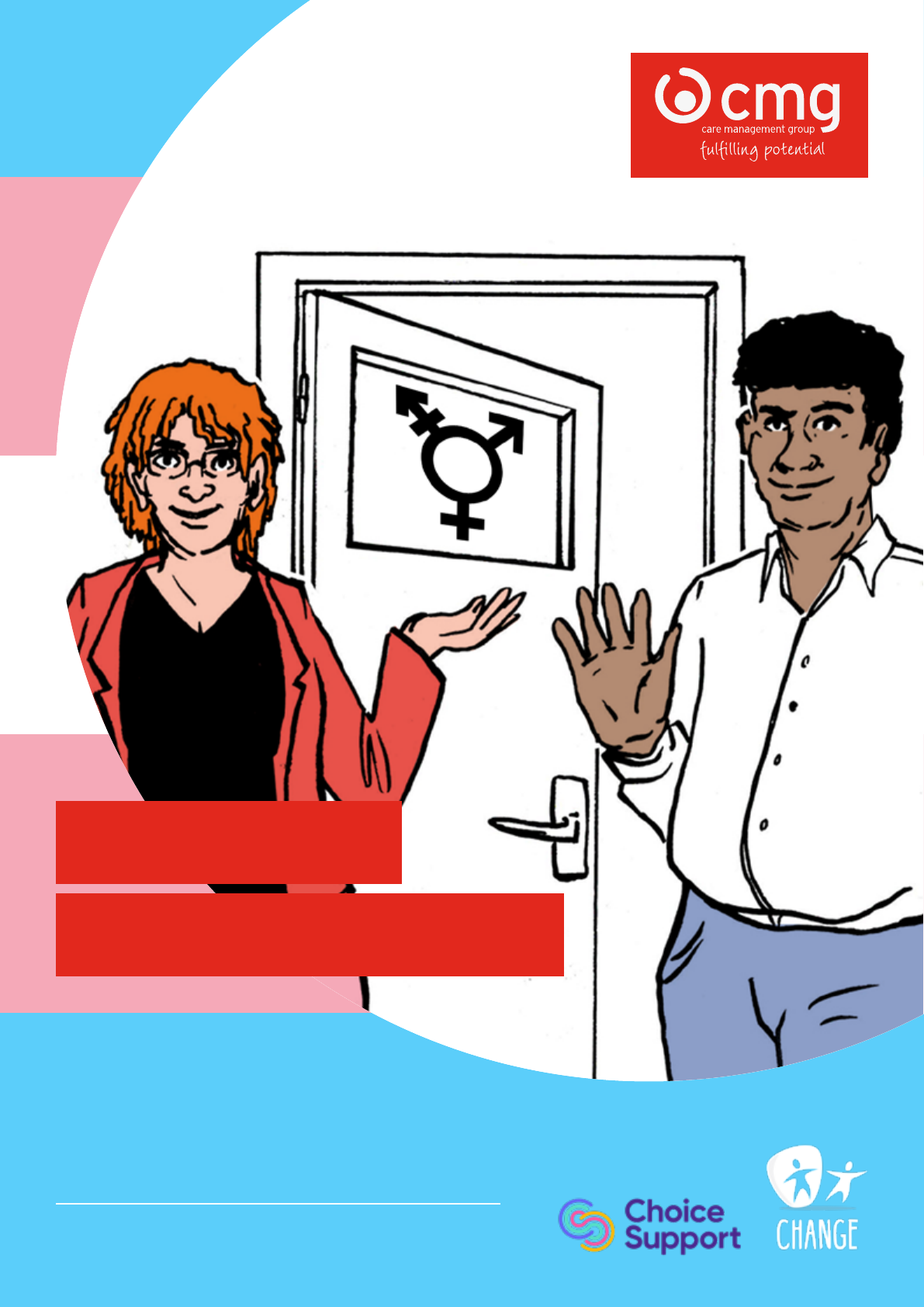
1
Developed by Care Management Group,
CHANGE and Choice Support
Transgender
an easy read guide
Thanks to Persia West
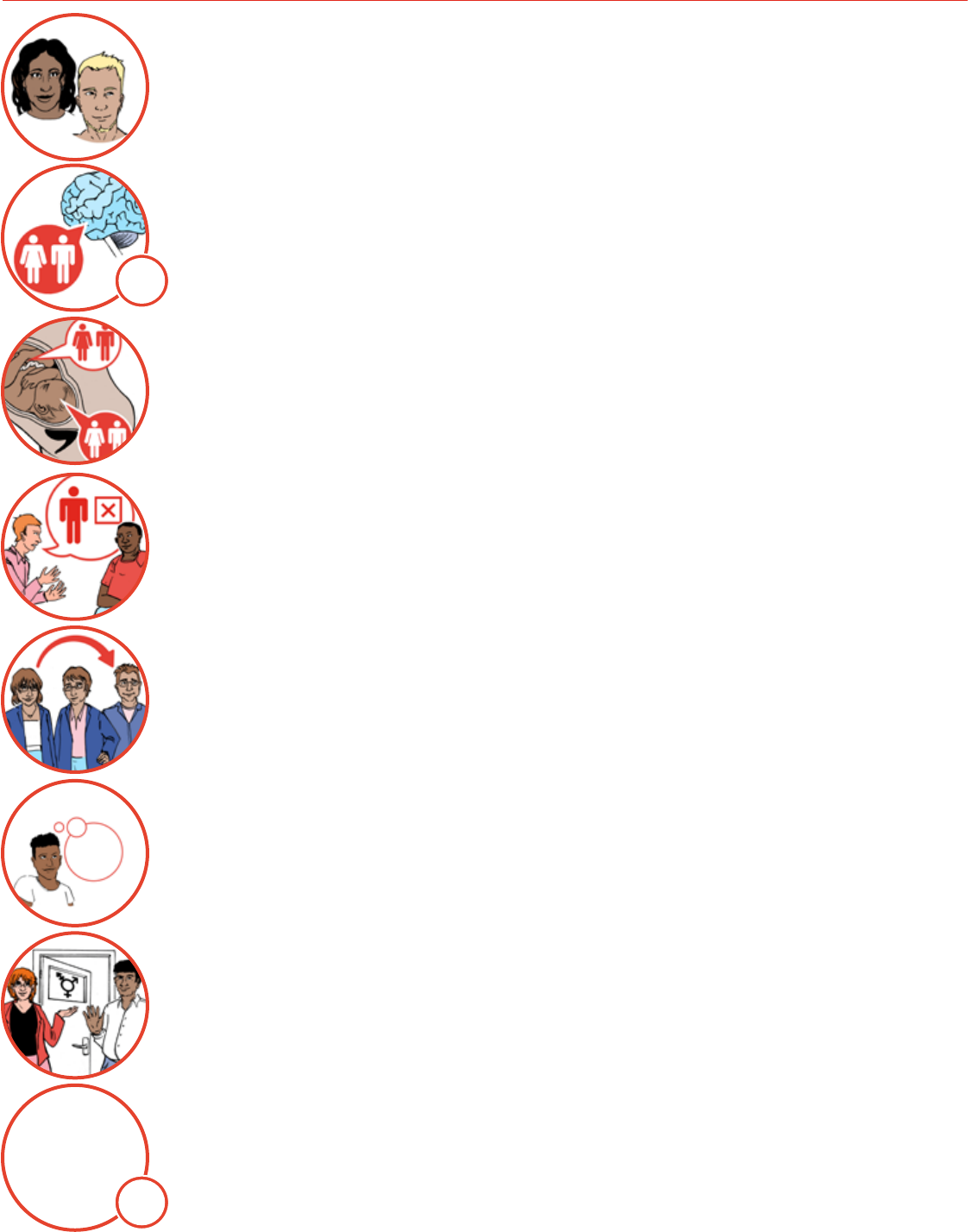
Contents
Introduction
Sex and gender
Transgender – what does it mean?
Practical Steps and what to do
Transition
Thoughts and Issues
Who to talk to and where to go to get
the help you need
Words and terms
3
4
5
7
13
20
22
29
Page
Page
Page
Page
Page
Page
Page
Page
?
?
Words
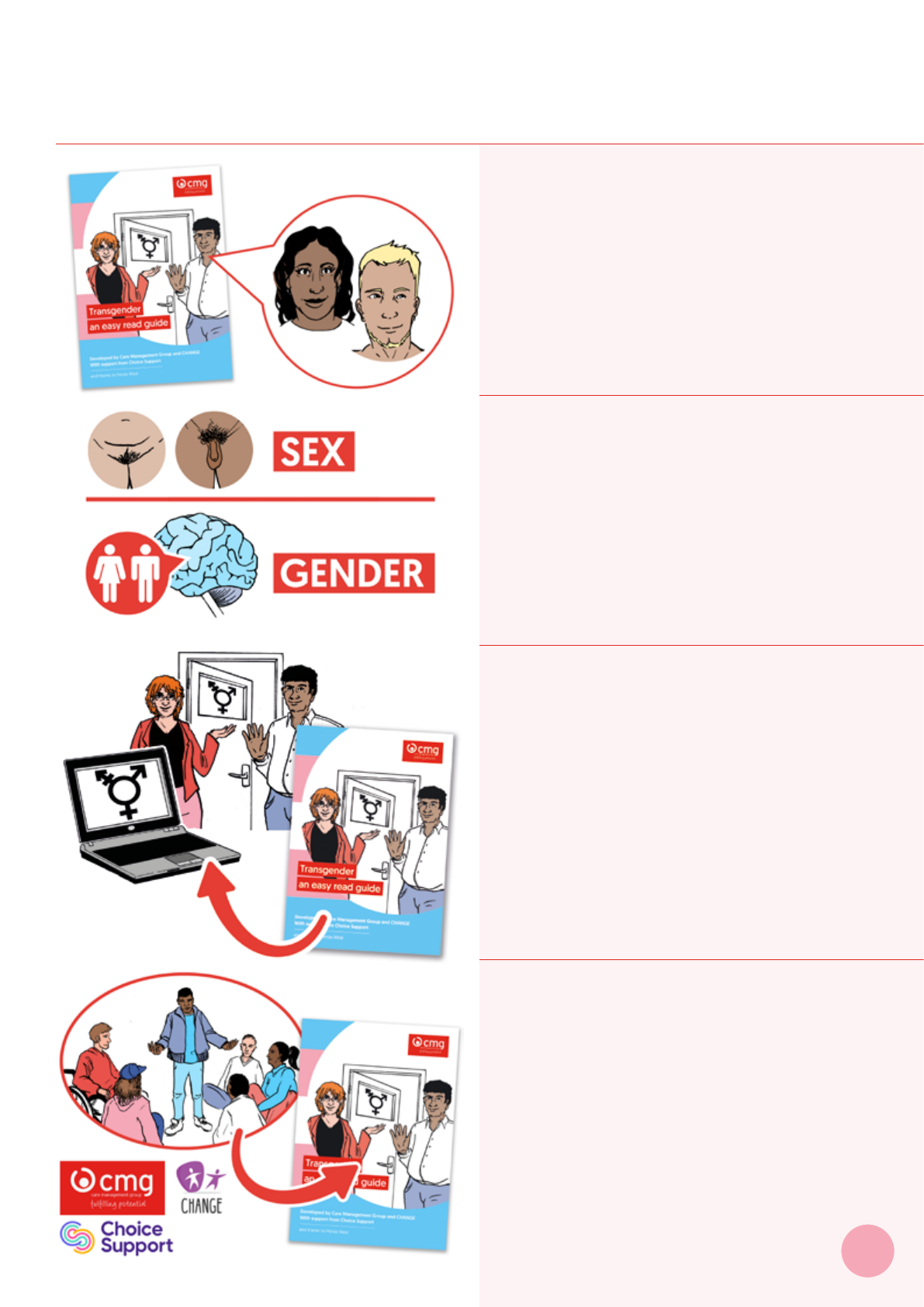
3
3
Introduction
This easy read guide is about
what it means to be transgender
and the issues you or someone
you know may experience.
The guide looks at the difference
between sex and gender and
explains the different words
and terms linked to transgender
identity.
The guide also looks at where
to go to get help, who to talk to,
transitioning, and the practical
steps to take if you or someone
you know is transgender.
The guide was created by the
Care Management Group and
CHANGE after focus groups with
people supported by CMG and
Choice Support.
Introduction
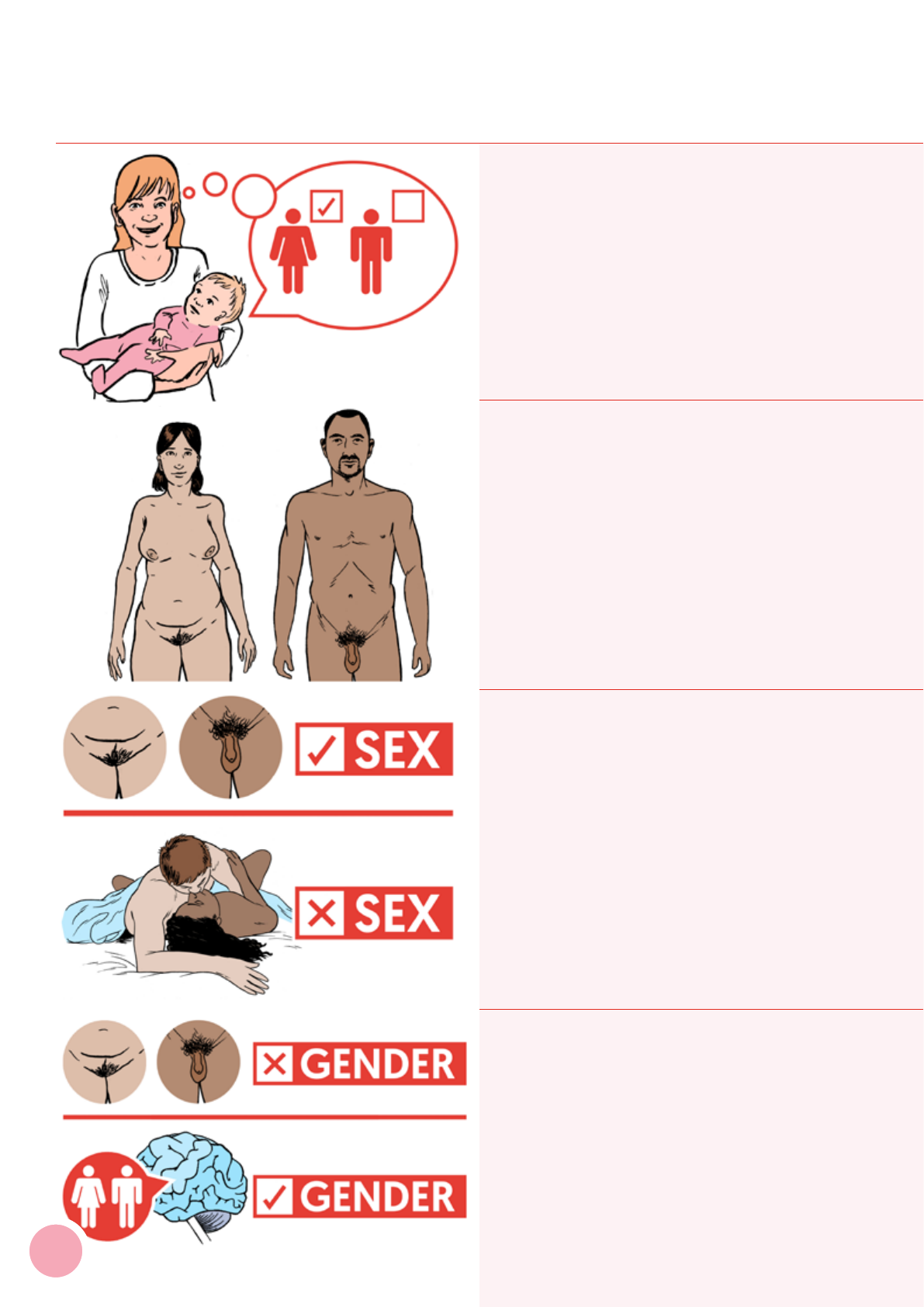
Sex and gender
Your sex describes the physical
body parts you were born with.
This means whether you were
born with a penis or vagina
(genitals) and described as
male or female based on these
body parts.
When we talk about sex in this
way, this is different to sexual
intercourse.
Gender is different to sex and
is how male or female you feel
you are.
4
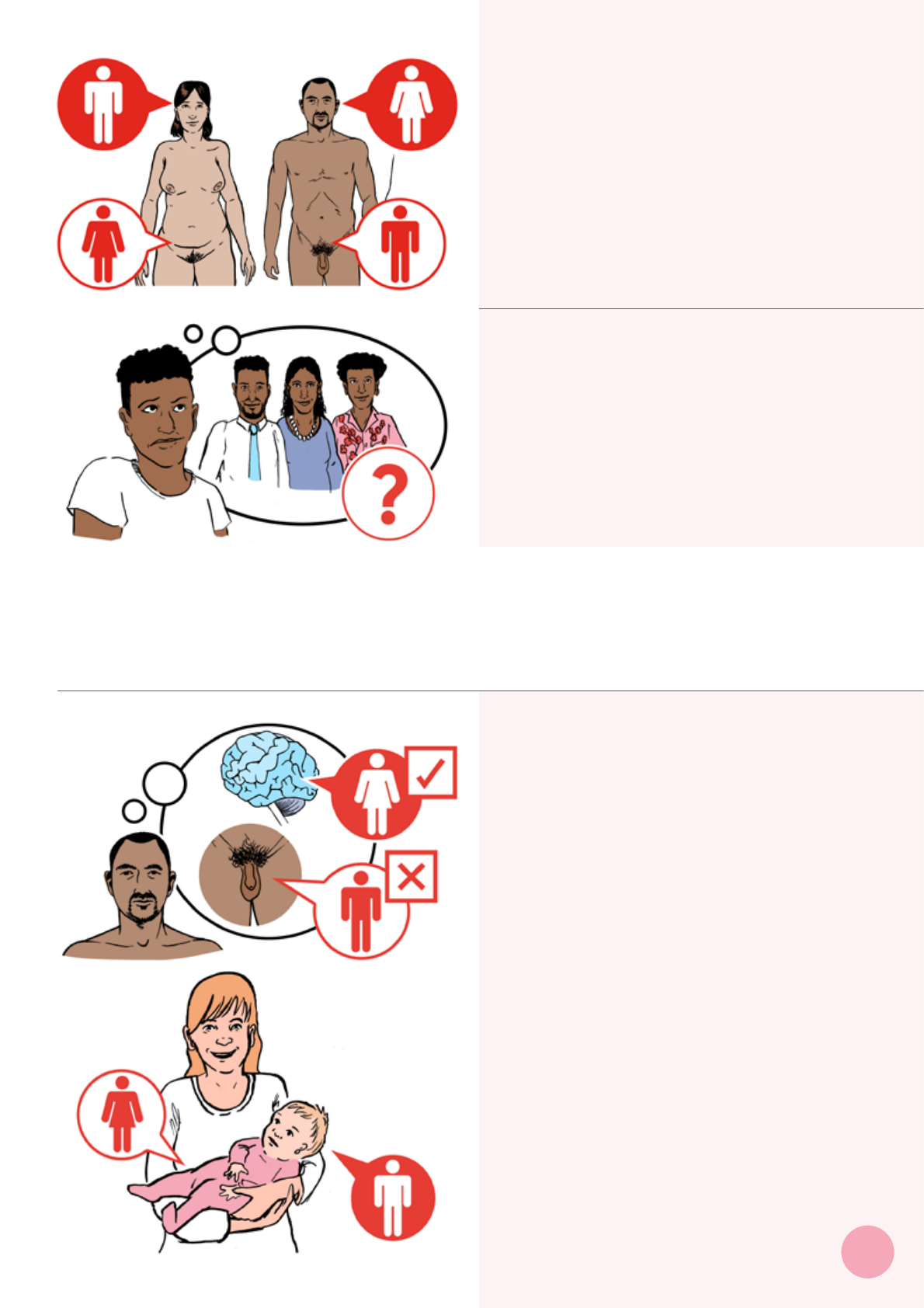
5
5
If you have male genitals you
may feel you are actually female.
If you have female genitals you
may feel you are actually male.
Sometimes you may be unsure
about how you feel about your
gender.
Transgender – what does it mean?
Being transgender is when
you know there is a difference
between your physical sex and
your inner sense of being.
This means a difference
between the genitals you were
born with and your inner sense
of being male or female.
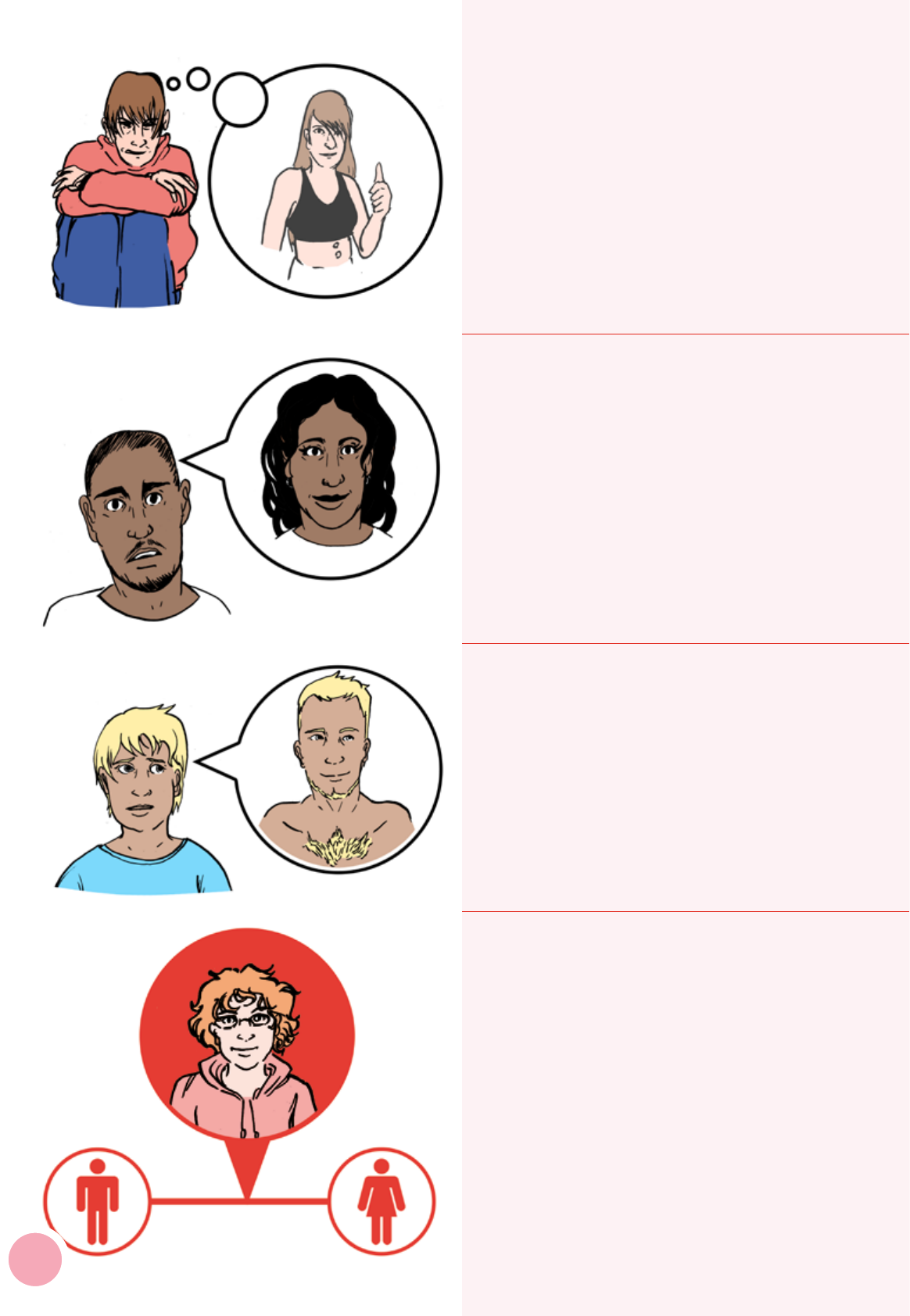
When this becomes distressful
for a person it is called Gender
Dysphoria.
You may have been born with
male genitals but feel you are
female.
Or you may have been born
with female genitals but feel you
are male.
You may feel somewhere
in-between.
6
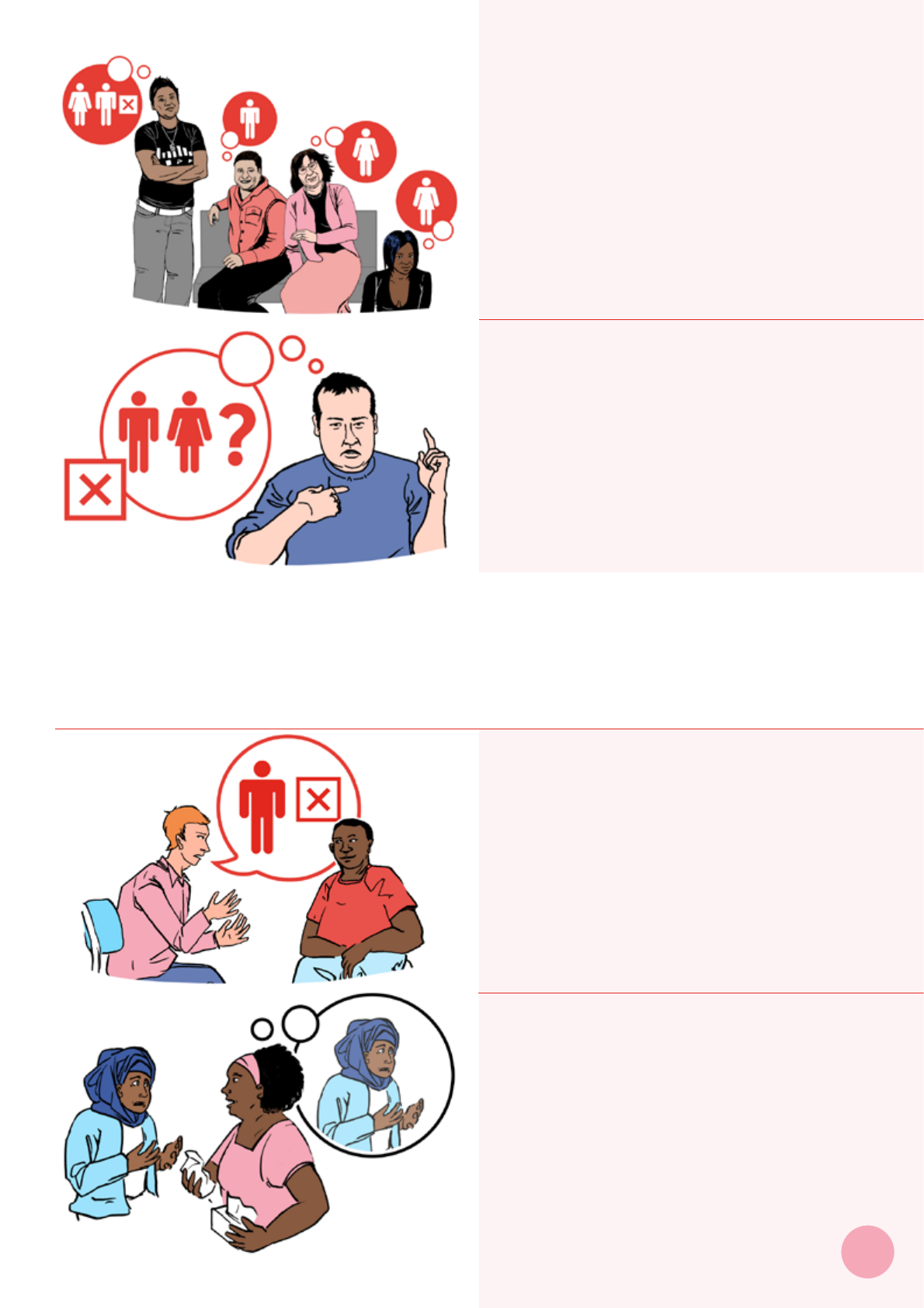
7
7
Gender, or how male or female
you feel, depends on the
individual.
Most transgender people don’t
choose their gender, it’s just who
they are.
Practical steps and what to do
Whatever stage you are at talk
to someone you trust, you will
need support and empathy.
Empathy is when someone you
trust will understand the feelings
you are having.
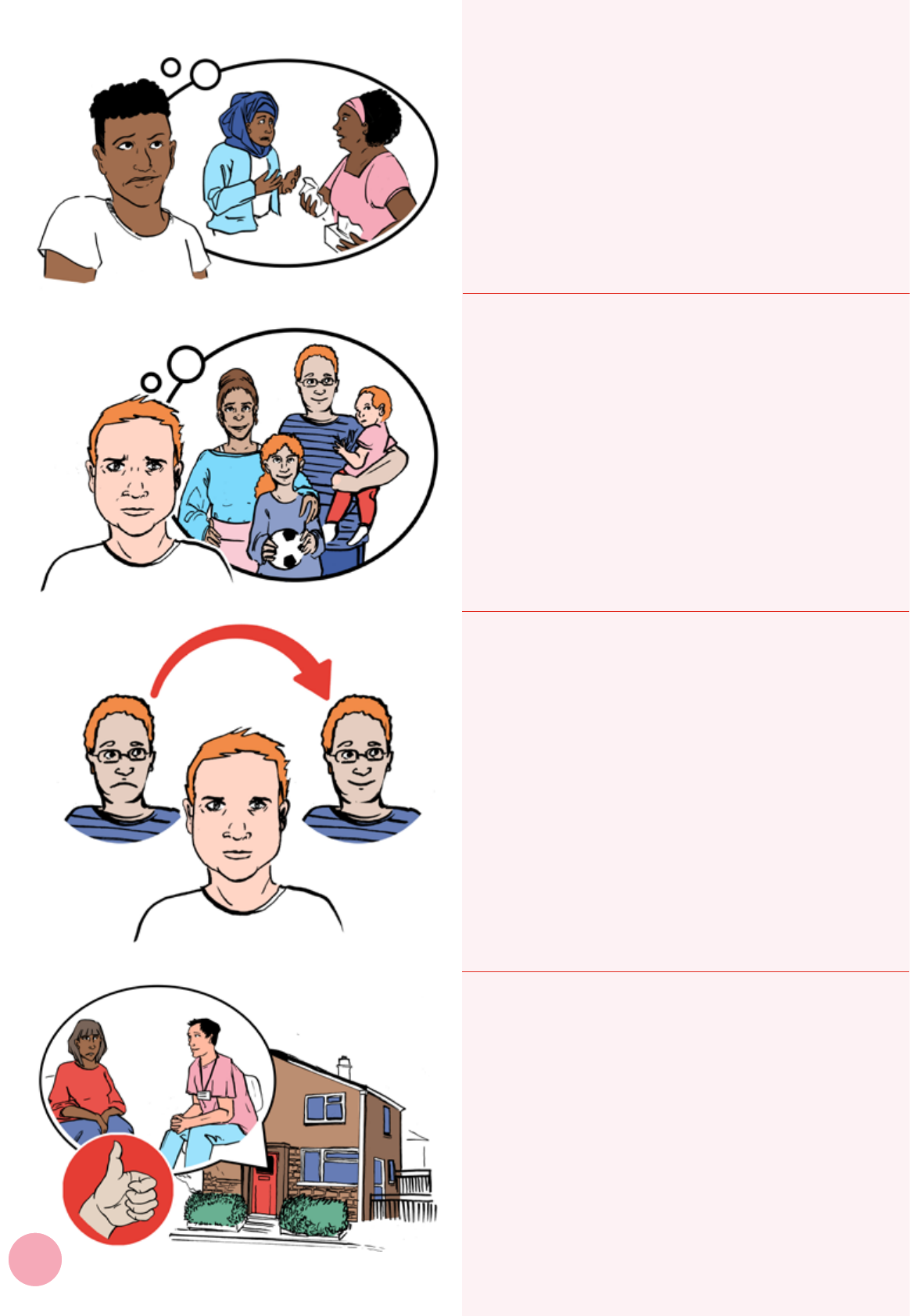
Telling people how you feel can
be emotionally and physically
difficult.
Telling your family might be
difficult.
Agree with people you trust how
and when your family will be
told.
If any member of your family
reacts negatively, you may need
support to help them to be okay
with you.
If you are supported in
Shared Lives, Supported
Living or Residential Care
your support team will need
to be supportive and have
information to help you.
8
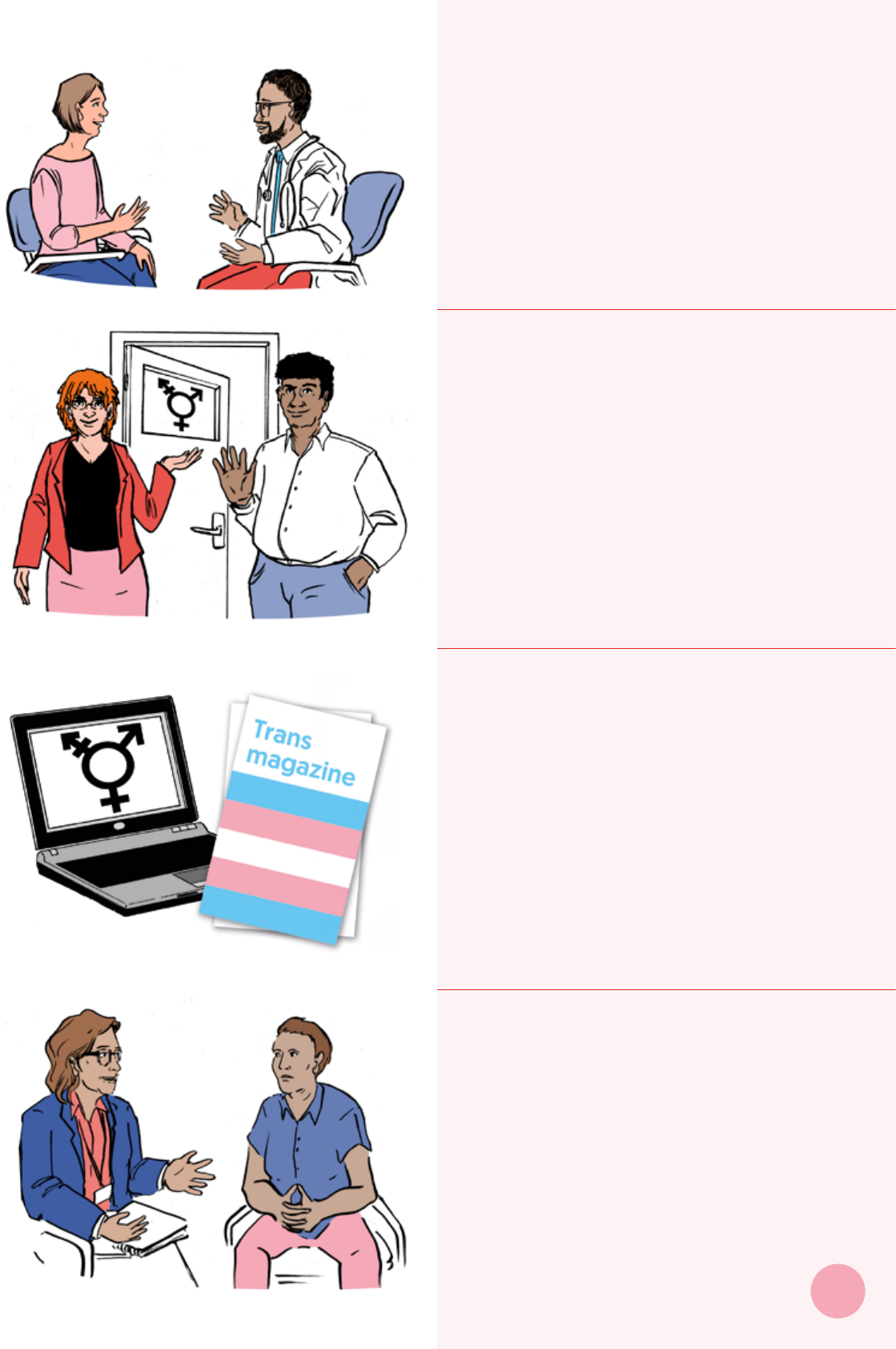
9
9
Join a local trans support group
if there is one and talk to people
who have experienced what
you are experiencing.
Talk to your GP and get advice.
If the GP is not helpful or
supportive, ask to see another
GP in the practice.
Gather information from trans
resources, publications, and
websites.
See pages 25 – 28 for examples
Talk to other professionals who
can help you. For example a
psychologist.
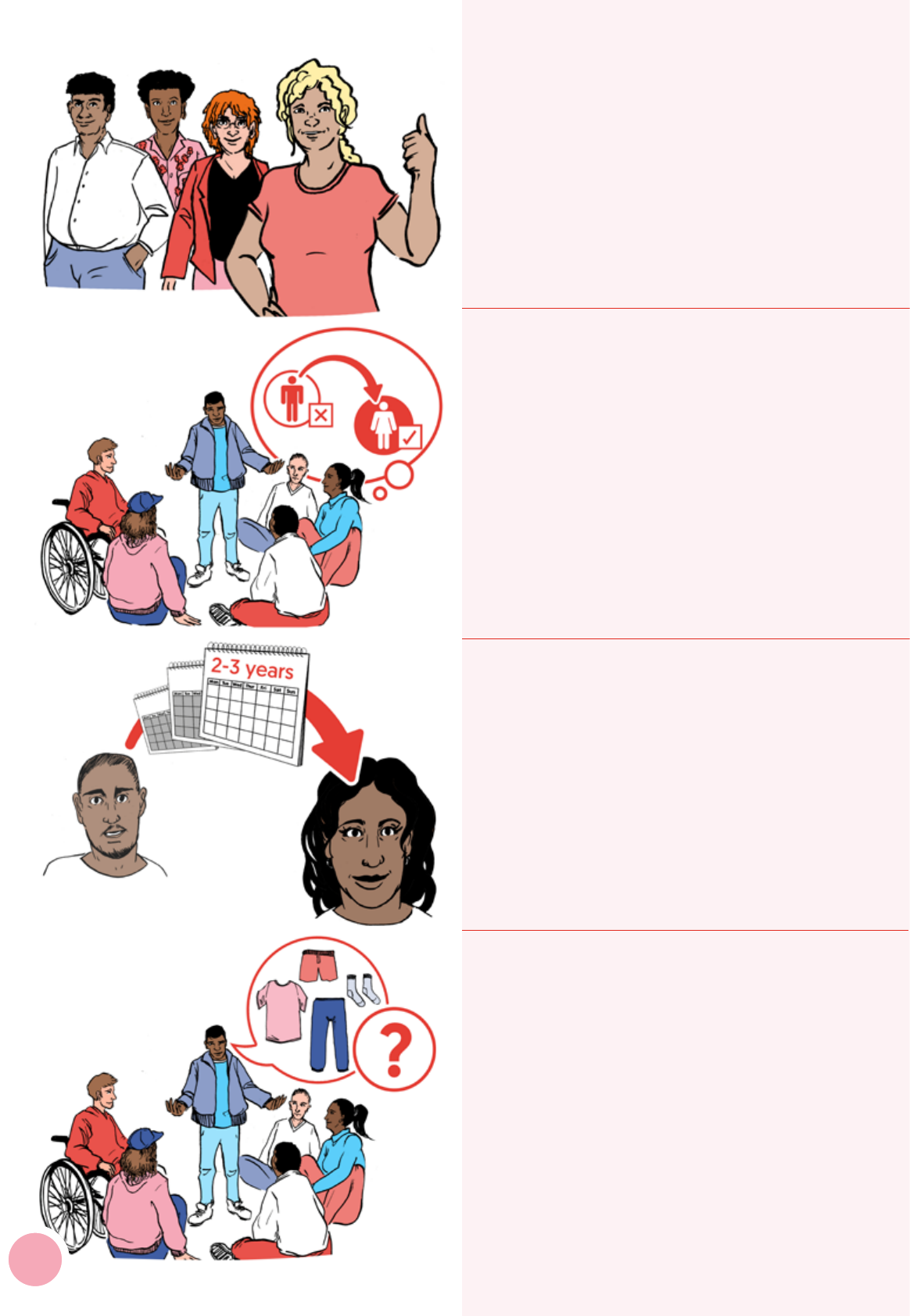
Have people around you who
support you.
Take your time, transitioning can
take a long time. On average it
takes 2-3 years.
Talk to people in your trans
support group if you want help
with your appearance. For
example your clothes and hair.
When you have support, use
those people to understand
transitioning.
10
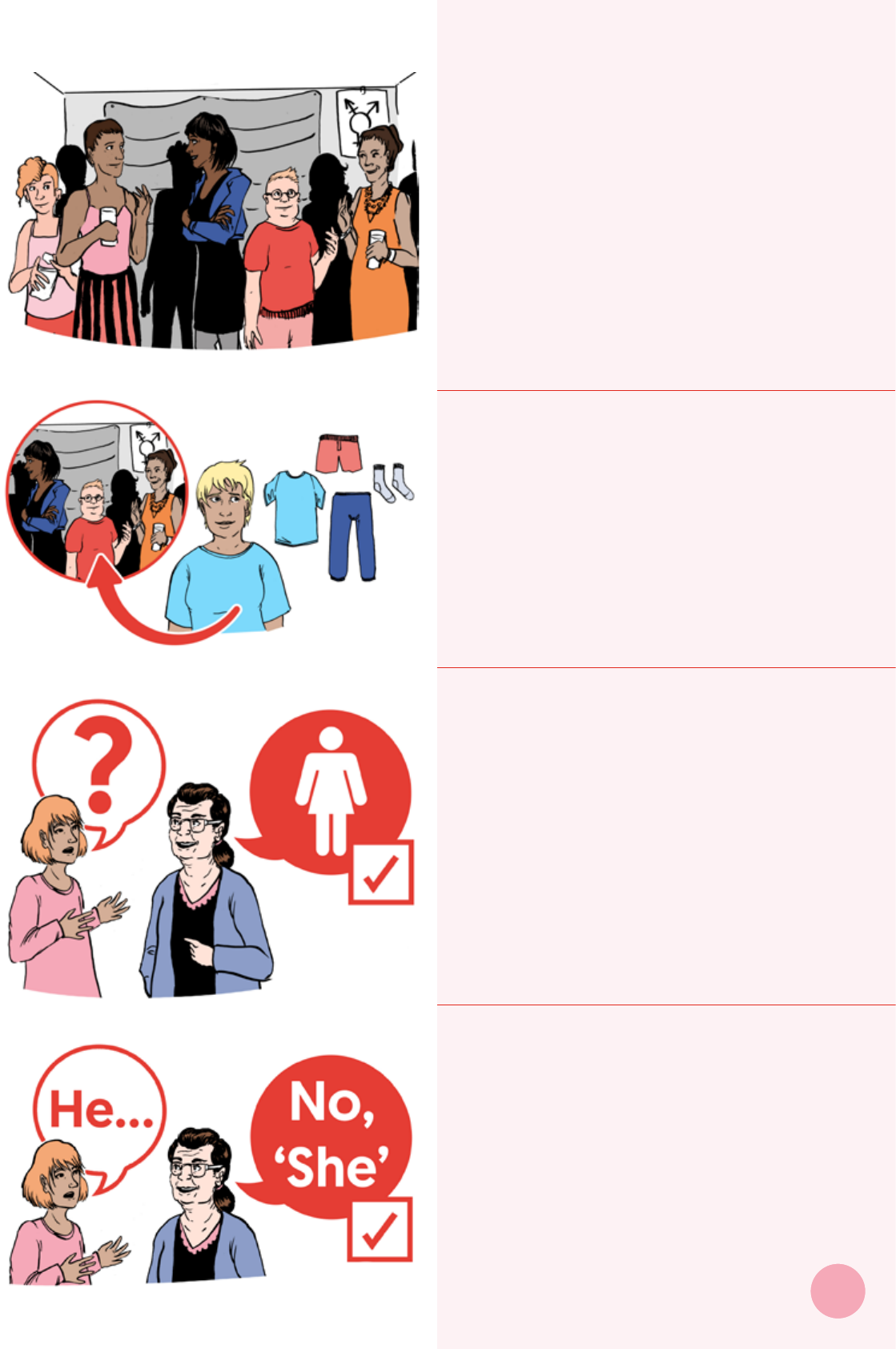
11
11
Find safe spaces to appear as
the man or woman you want to
be.
This could include trans social
events, if there are any near you.
Use your safe space to wear the
clothes you want without feeling
like you stand out.
Support people to understand
how to address you. For
example your name and
whether to use he, she, or
another term.
Some people may make
mistakes when they address you.
You can gently correct them. It
gets better with time.
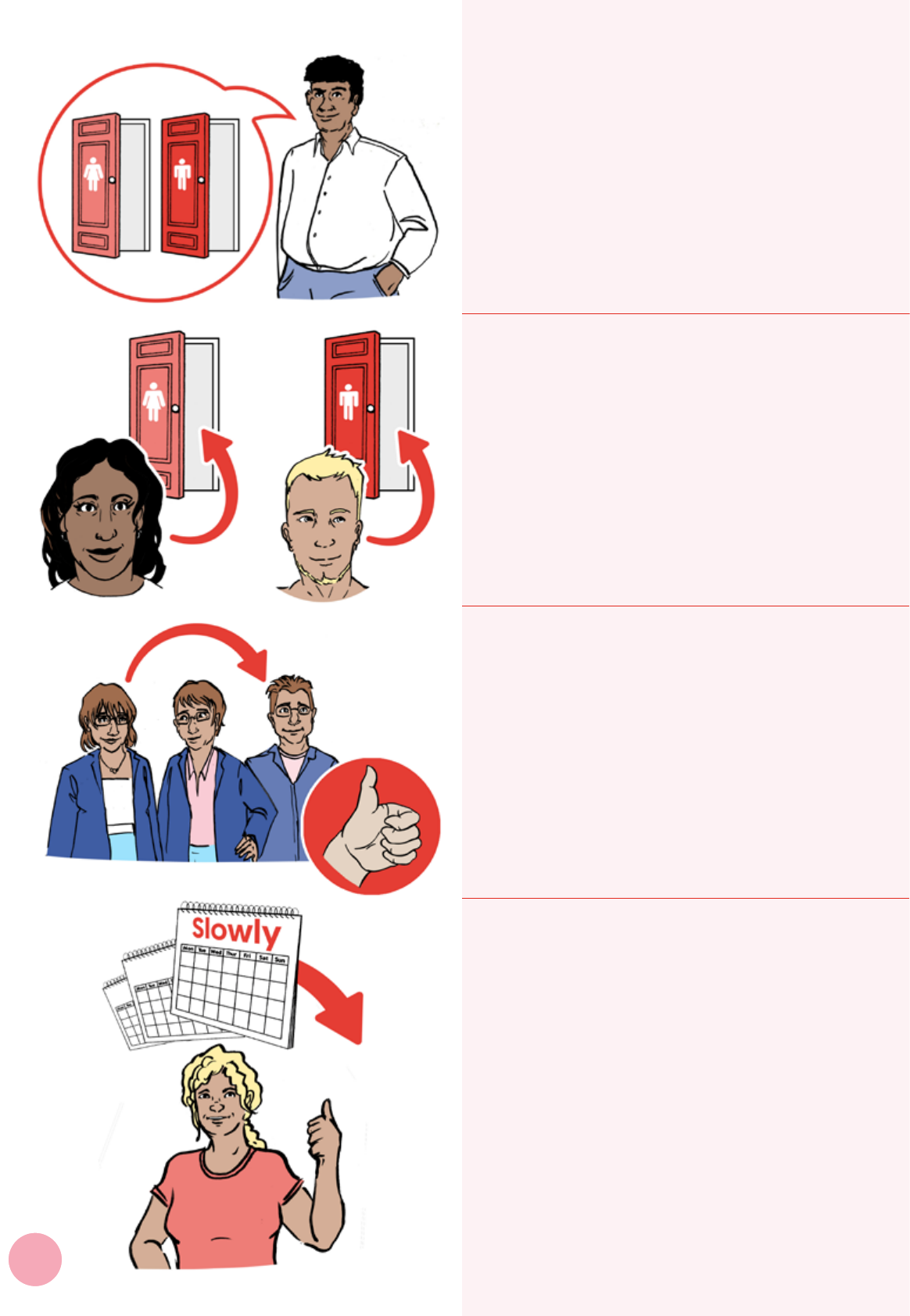
Get support to understand
which toilets to use.
The accepted view is that if you
are presenting as a gender you
use those toilets.
This means if your appearance
is female you use female toilets.
Whatever stage you are at
do what is right for you.
Take things slowly, this is the best
way to do things.
12
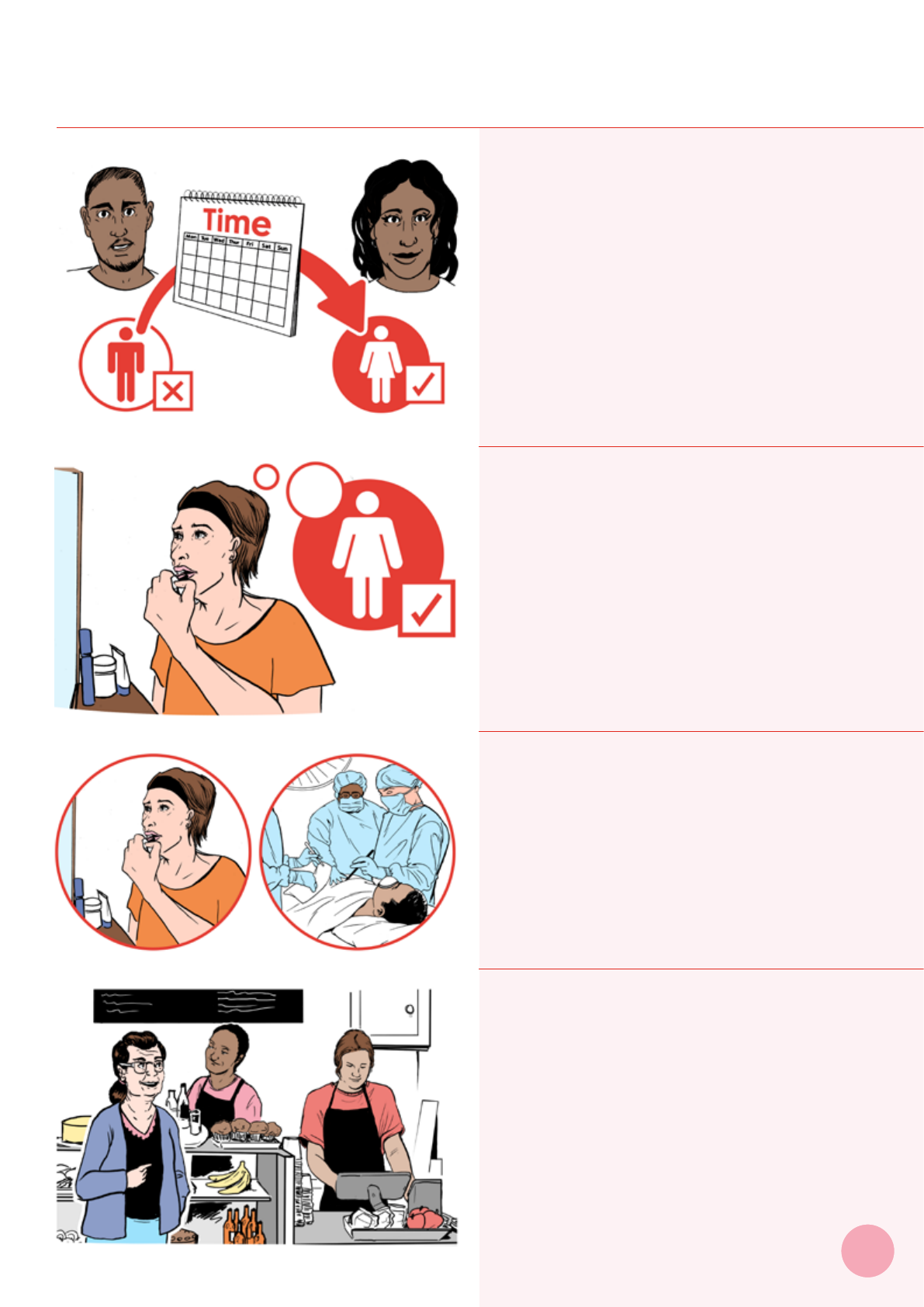
13
13
Transition
Transition is a period of time
where you change your
gender identity to what you
want it to be.
This means changing the
appearance to the gender you
feel you are.
You can change your identity
socially, medically or both.
Transitioning socially means
changing how you appear and
act in the world.
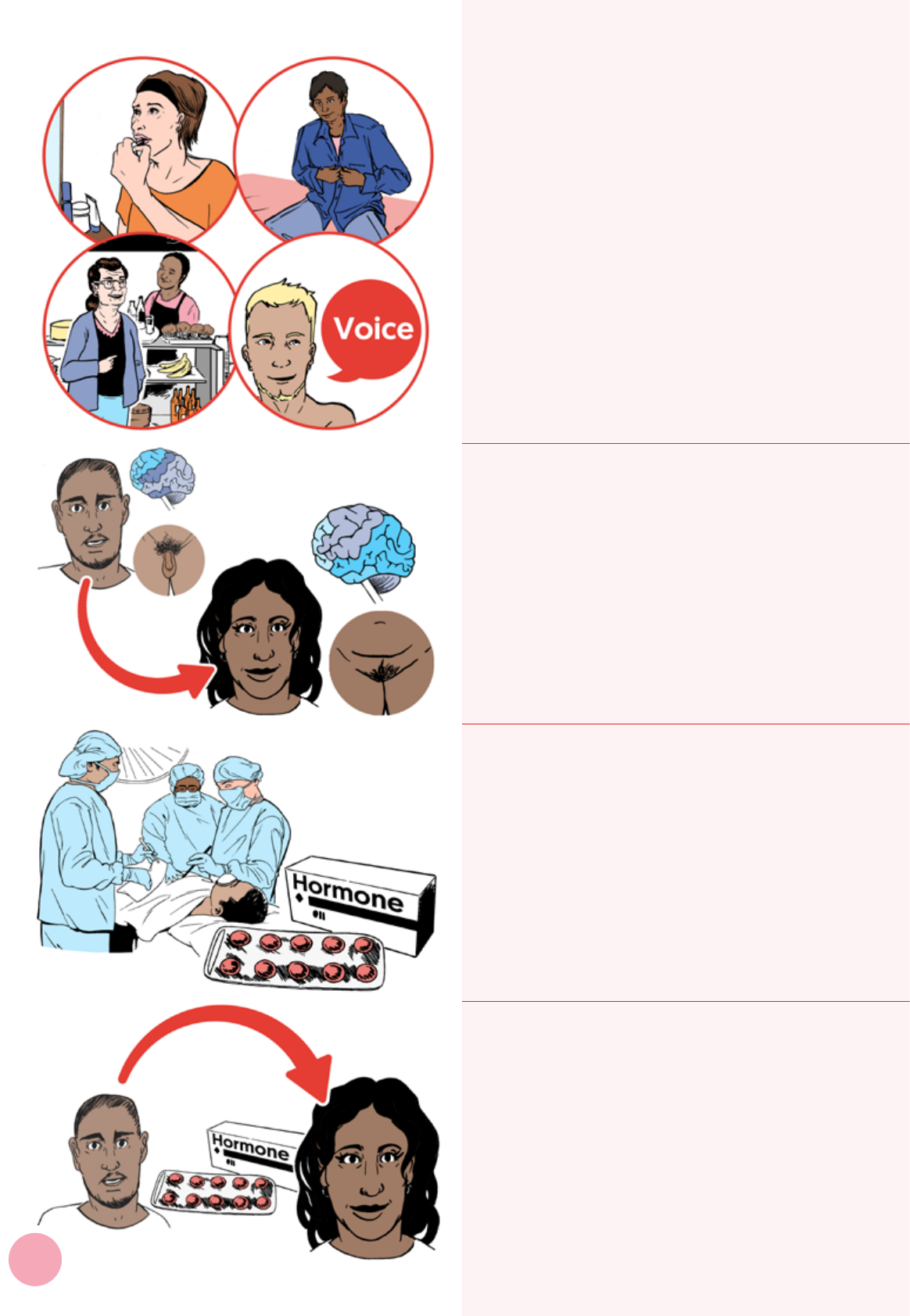
This could include changing
your hair, make-up, clothes,
behaviours, and voice.
Transitioning medically means
changing sex by changing
your physical appearance and
your genitals.
These changes are made with
hormone treatment and during
surgery.
Hormone treatment can help
make you feel more male or
female.
Changes to your body and how
you feel can be slow.
14
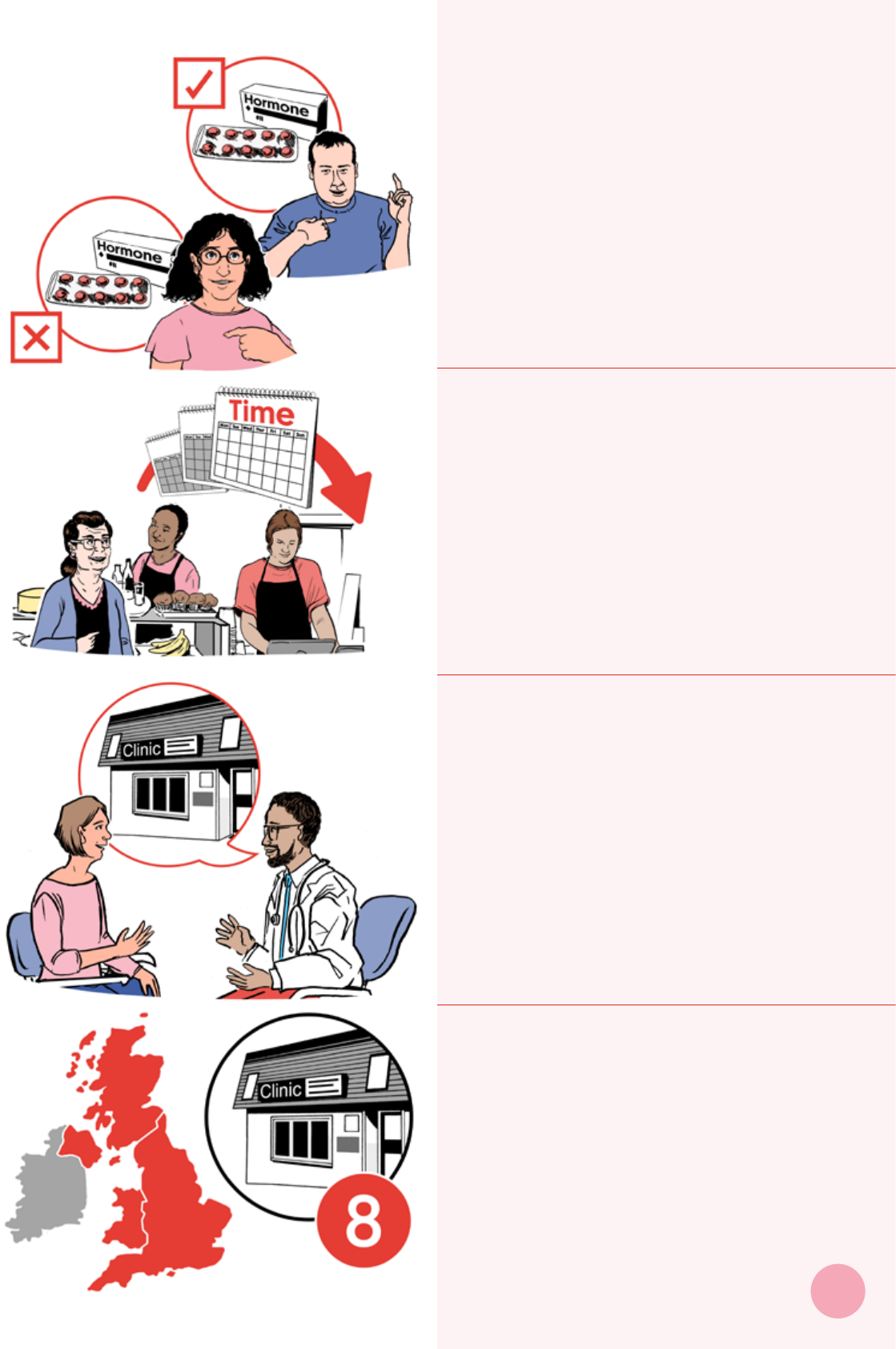
15
15
There are different options
in the transition phase and
not everyone has surgery or
hormone treatment.
Transitioning socially will mean
to begin living as the person you
want to be.
To transition medically talk to
your GP, they will refer you to a
Gender Identity Clinic.
There are eight in the UK.
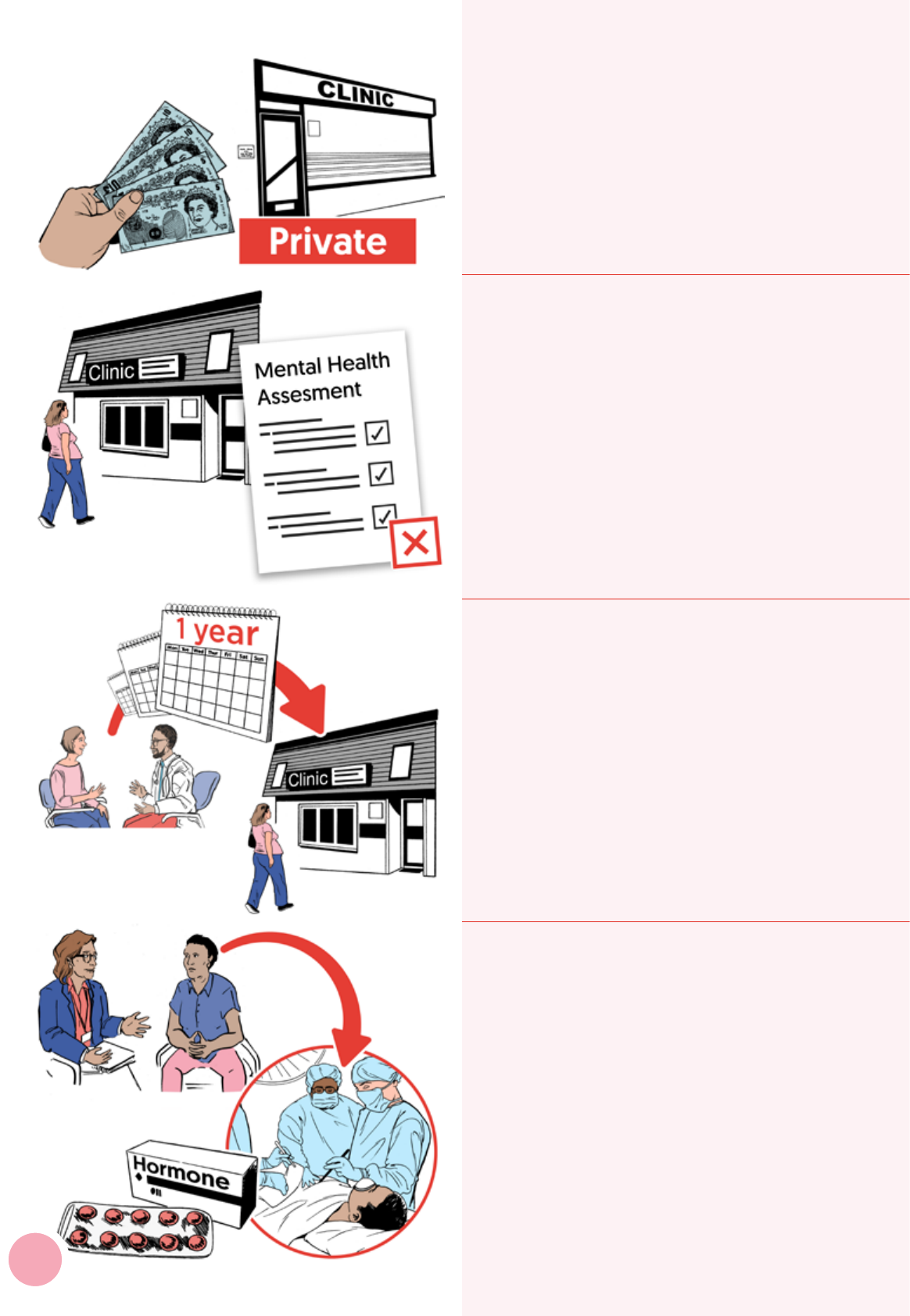
You can also pay privately for
your treatment.
You do not need a mental health
assessment to be referred to a
Gender Identity Clinic.
It may take up to a year or more
for your first appointment.
To transition socially and
medically you should have
access to counselling.
16
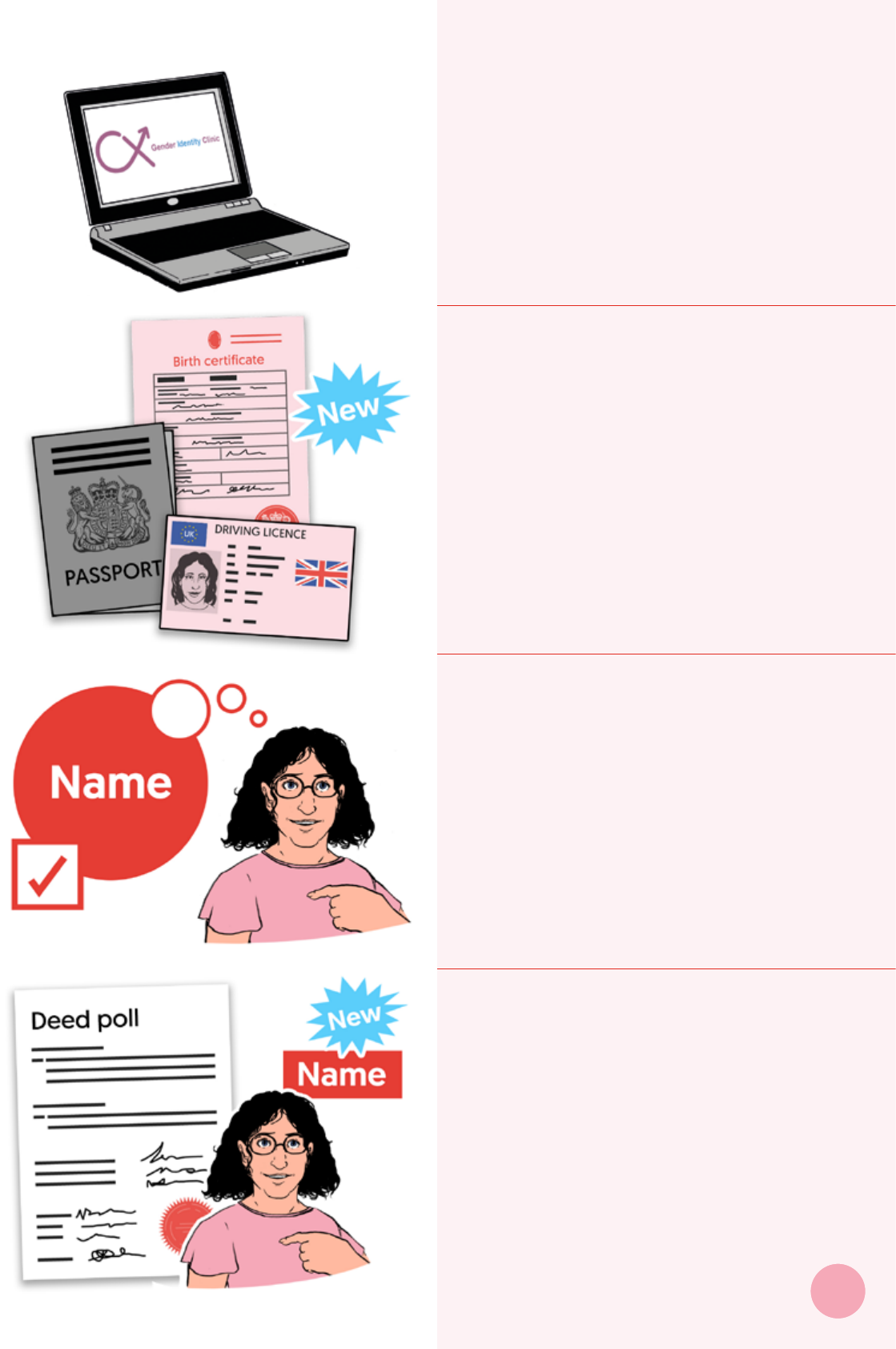
17
17
You can find more information
about Gender Identity Clinics
here: https://gic.nhs.uk/
Part of transitioning is changing
your name, and your gender and
title on official documents.
You can change your name to
whatever you wish.
See https://deedpolloffice.com
You can change your name
officially by a deed poll.
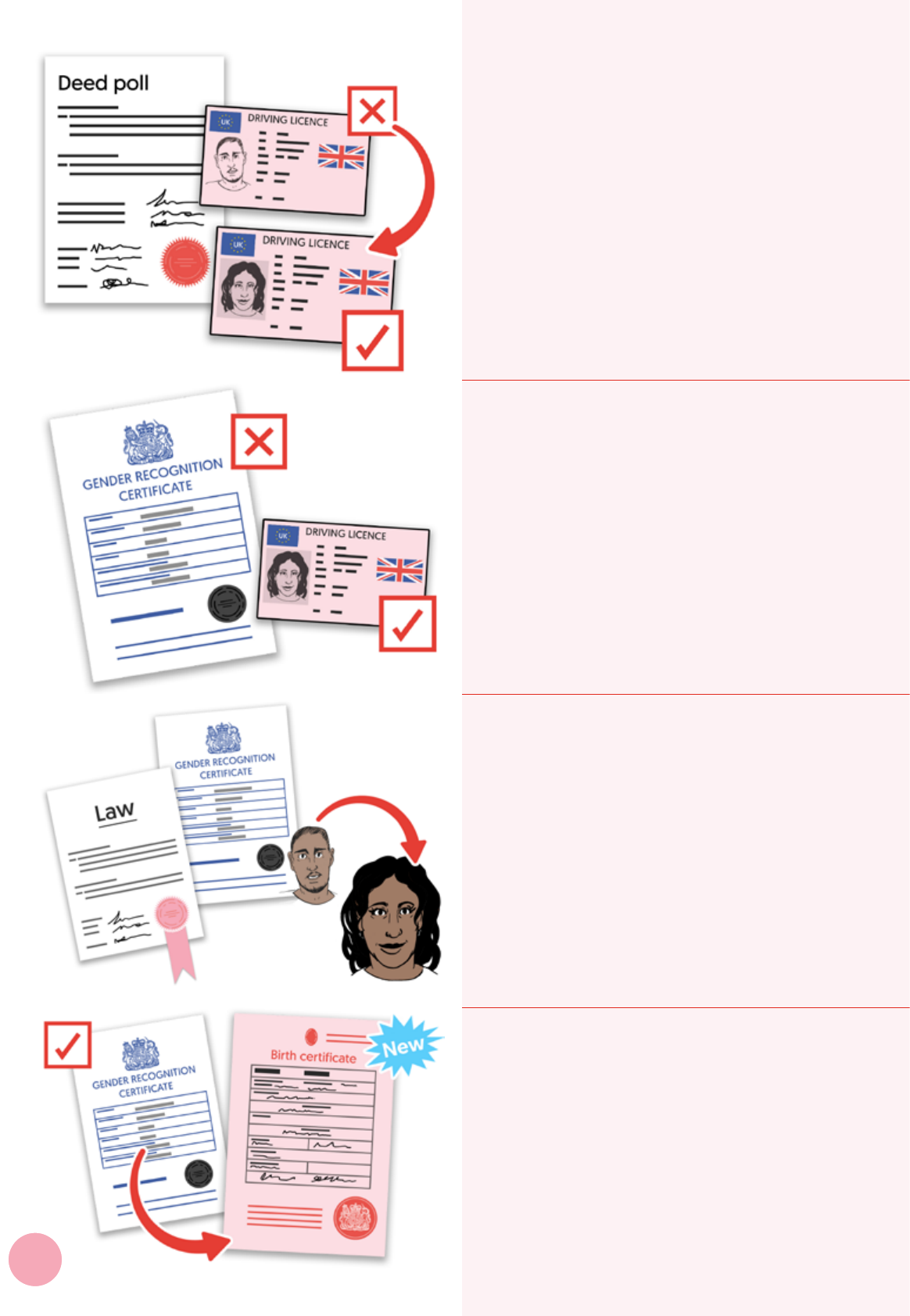
This is helpful if you want to
change your name on your
passport and driving license.
You can make the changes on
most official documents by law
without a gender recognition
certificate.
A gender recognition certificate
is a legal change of gender.
To get a new birth certificate
with your change of name and
gender you will need to get a
gender recognition certificate.
18
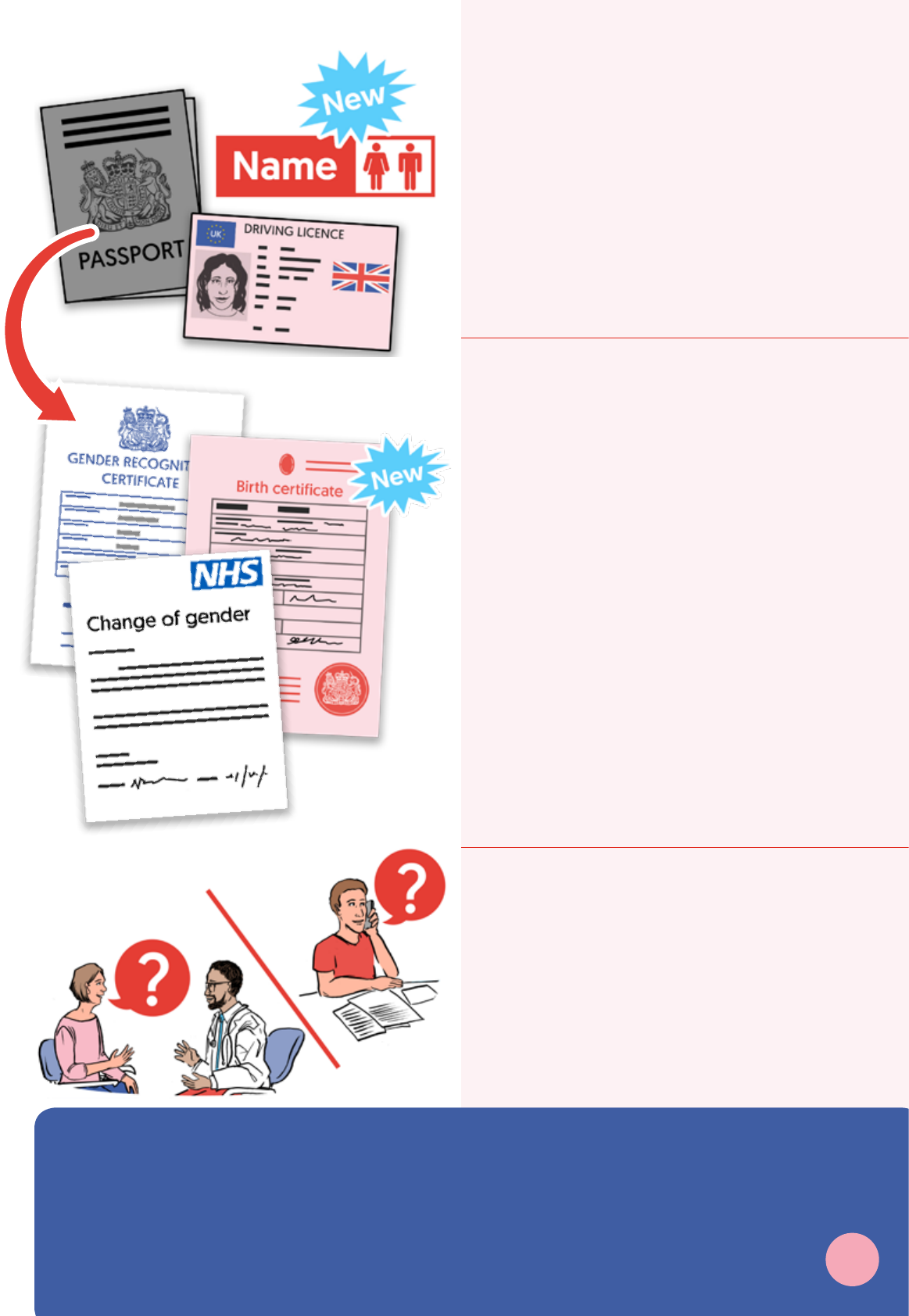
19
19
19
To change your name on your
passport and driving licence you
will need:
A Gender Recognition
Certificate or,
A new birth or adoption
certificate showing your
acquired gender or,
A letter from your doctor
saying your change of
gender is permanent.
See https://gov.uk
1
2
3
This is an overview of the
transition phase. For more
information contact one of the
organisations in the guide or
speak to your GP.
In making this guide we ran focus groups. In these focus
groups people gave us their thoughts and talked about the
issues they had experienced. These are on the next page.
19
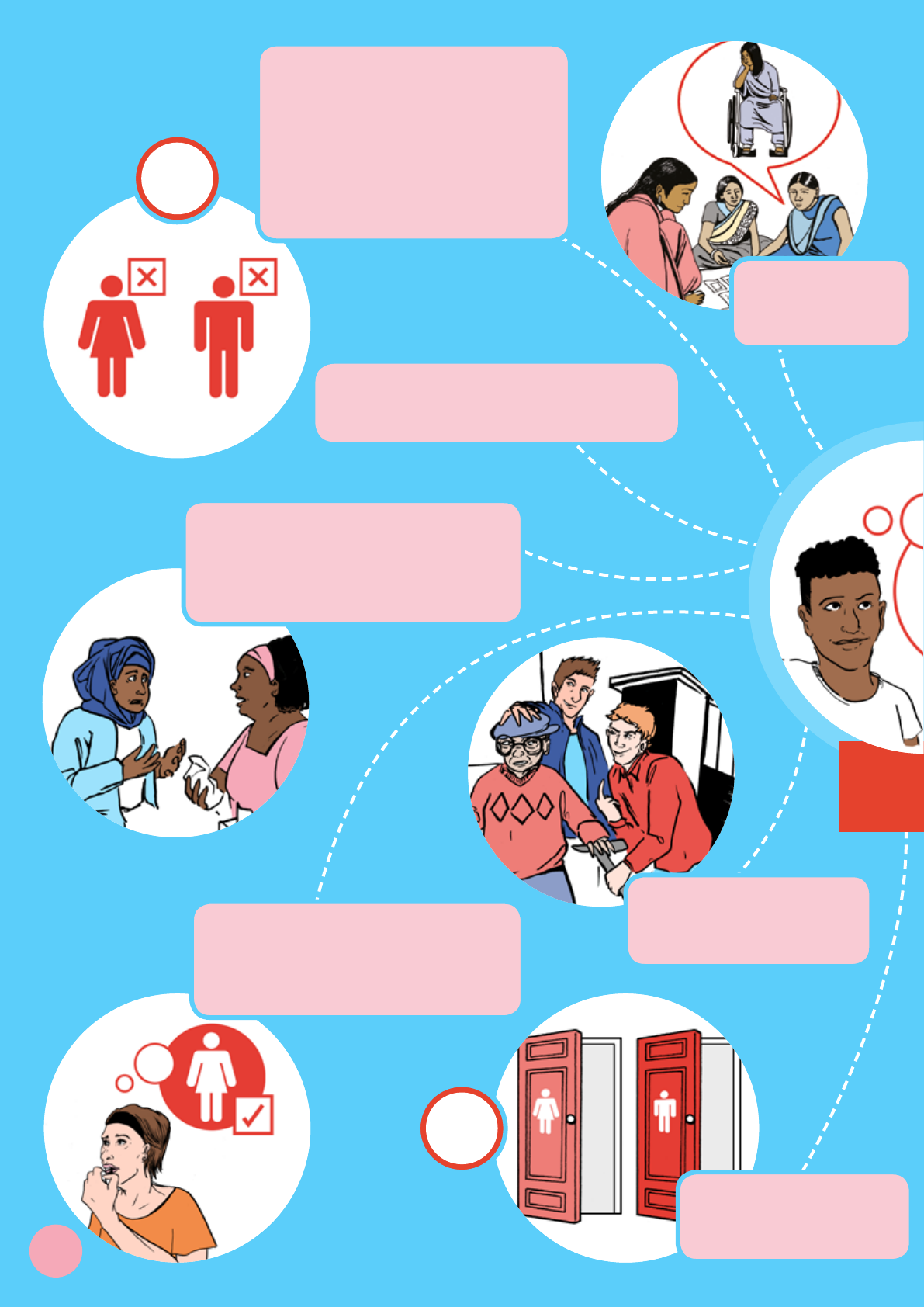
There is a high suicide rate for
people who are transgender.
You are recreating your
identity. You are rebuilding
who you are.
Being in an in-between
place is always hard.
It’s always hard if you don’t
fit in a box. Definitions can
be difficult.
Transitioning can affect your
mental health e.g. pain and
depression, shame and guilt.
Public toilets can
be difficult.
You can experience
hate crimes.
Families can be
controlling.
?
?
Thoughts
and issues
20
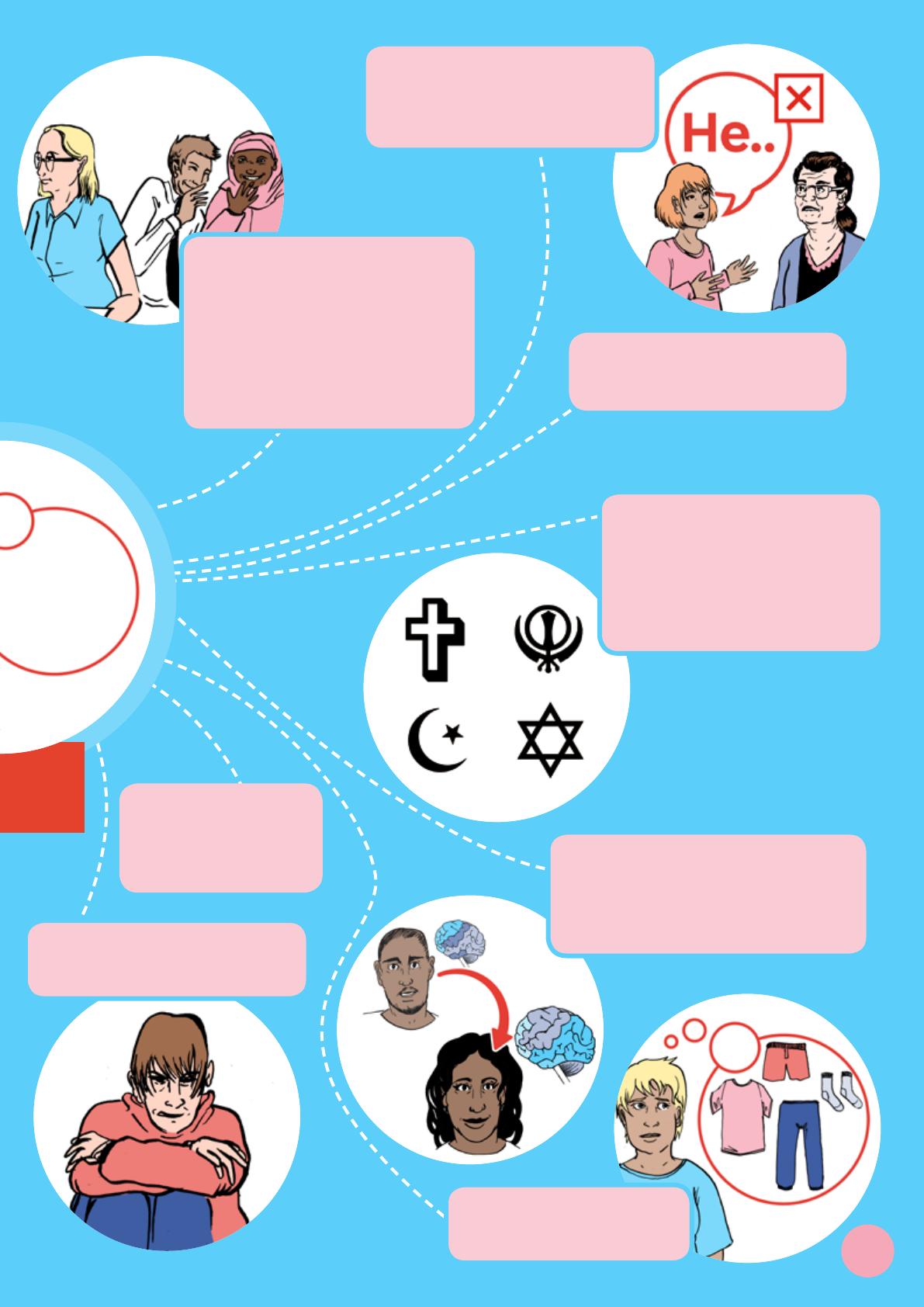
Shifting identity can be
isolating for a person.
Transitioning is a change in
your physical and mental
make-up.
It’s difficult when people
get your name and
gender wrong.
The in-between stage
leaves you vulnerable.
Religious beliefs can
affect your decision.
You can lose a sense of
belonging.
You have to re-learn
how to dress.
You experience stigma.
You have to deal with
peoples’ opinions and
people judge your
appearance.
There is social
pressure to be a
certain way.
Thoughts
and issues
21
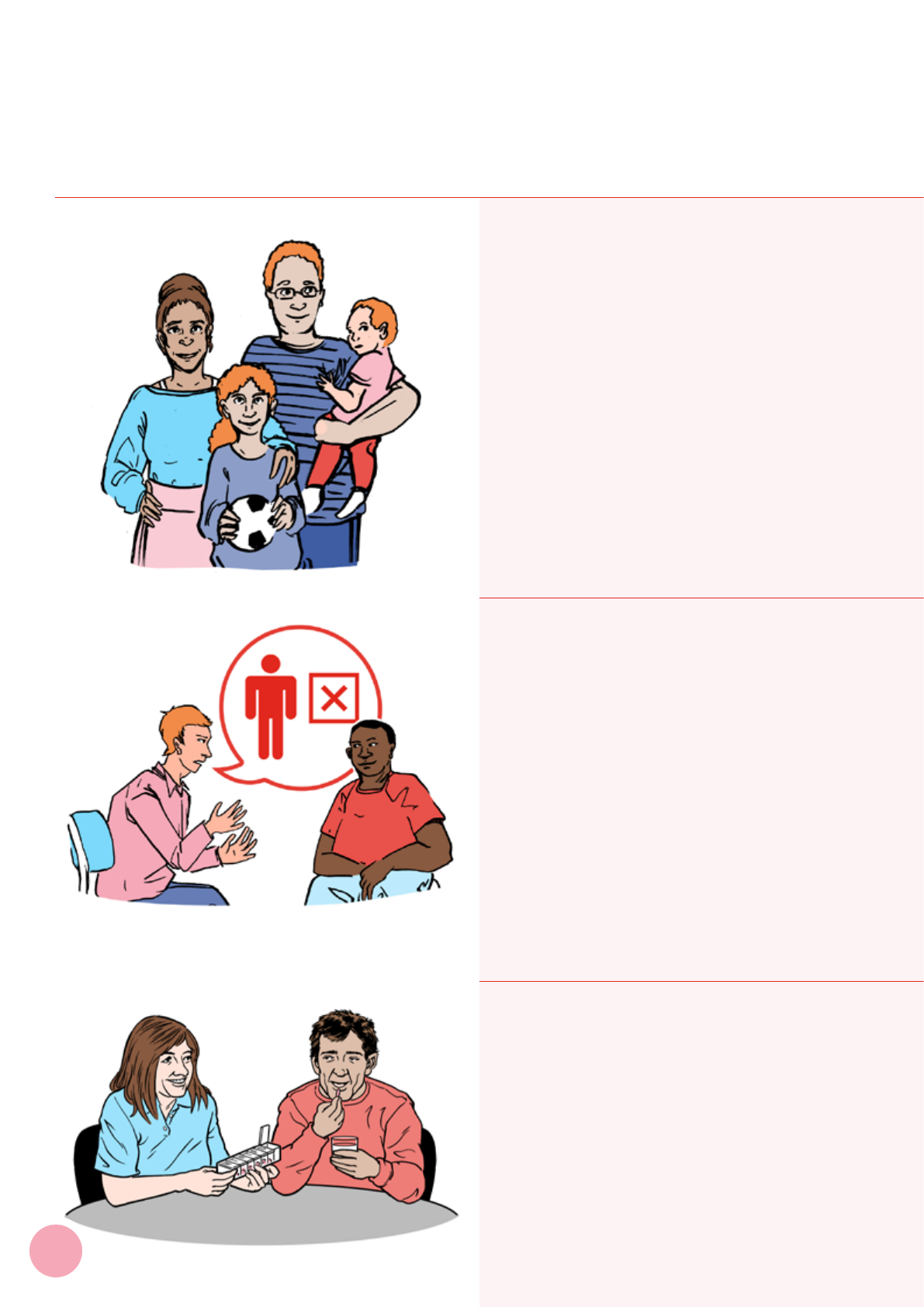
Who to talk to and where to go to get
the help you need
Speak to someone you trust, this
could be:
A family member
A friend
Someone who supports you
22
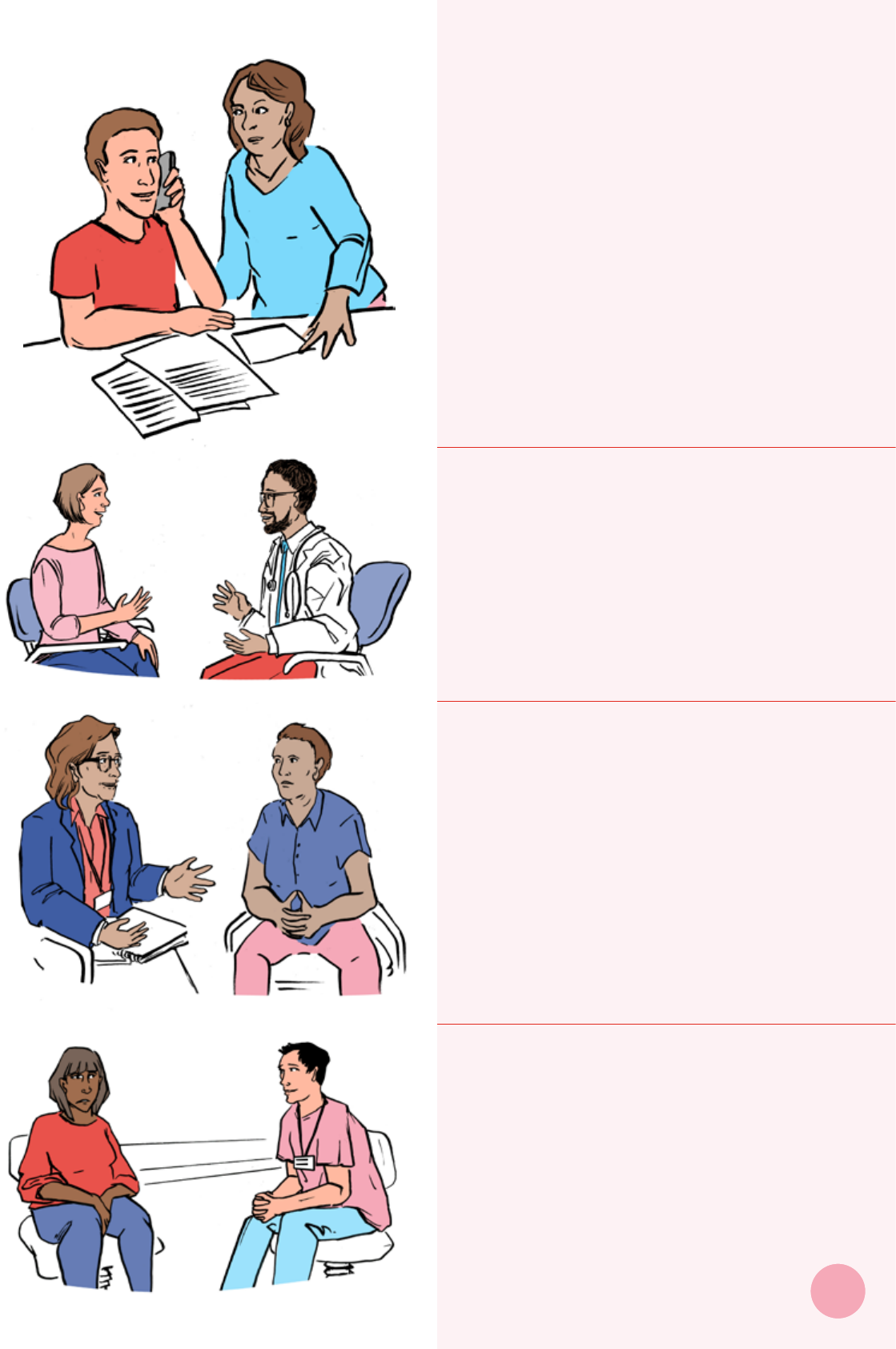
23
23
An advocate
A professional like your GP
A counsellor or a psychologist
A staff member
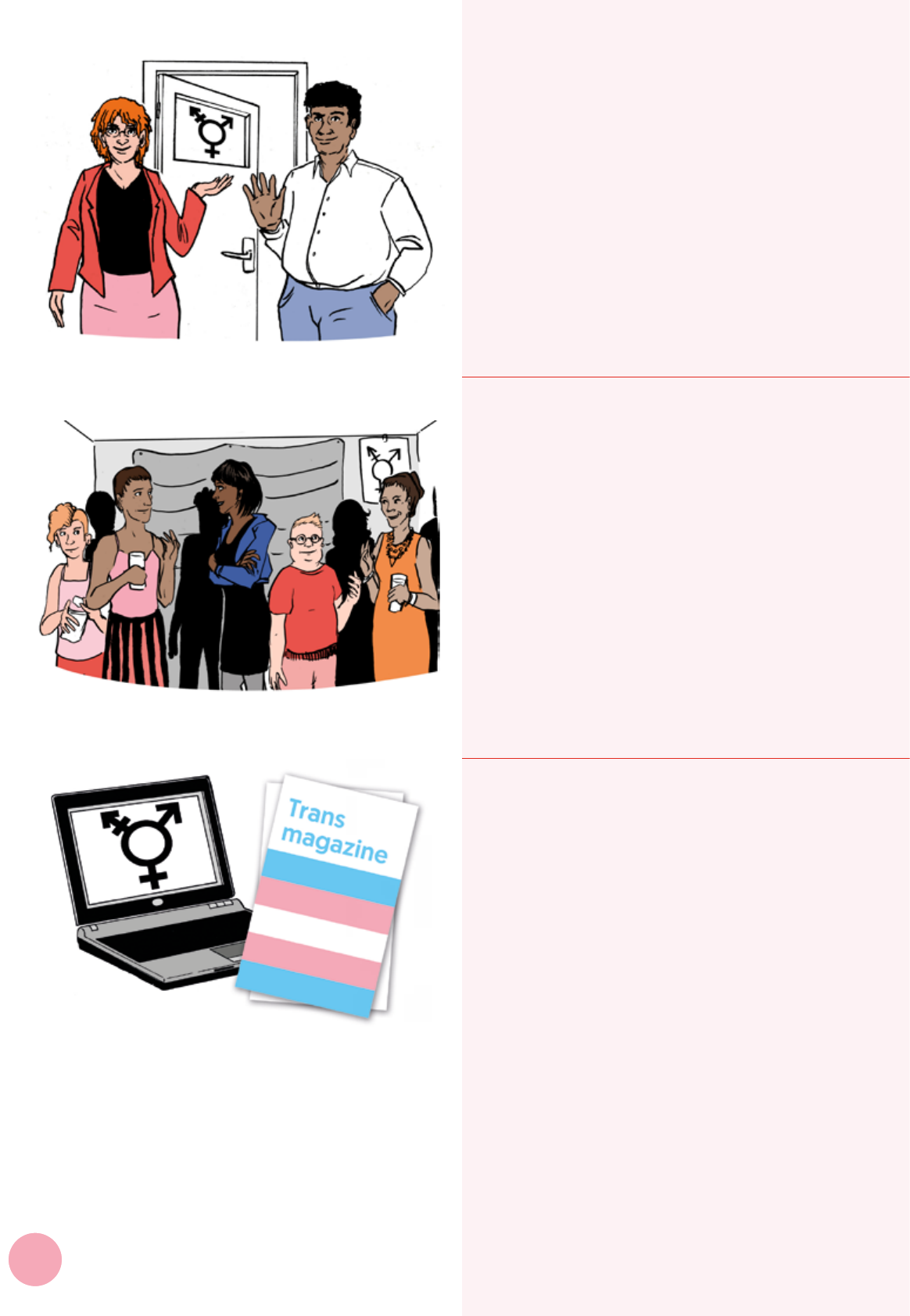
At a face to face trans support
group
A local trans night or event
In the following section is a list of
support groups you can contact
or places to find resources and
information online.
24

25
25
Clare project
Transgender support and social group in Brighton
Depend
Support group for families and friends in the UK
Gender Trust
Supporting adults whose lives are affected by gender identity issues
GIRES
Gender Identity Research and Education Society
Imaan
Support for LGBT Muslims and trans Muslims
Intersex UK
Education, advocacy, campaigning and support organisation
Organisations
clareproject.org.uk
depend.org.uk
gendertrust.wordpress.com
gires.org.uk
imaanlondon.wordpress.com
ukia.co.uk
25

26
Press for Change
Legal advice, training, and research for trans people as well
as representative, public and private bodies
Mermaids
Support for teenagers and children
Trans Bare All
Events and retreats to help members of the trans community
Trans*formation
Advocacy group for professionals who identify as trans
Trans London
Support and social group for trans people in London
Trans Resource and Empowerment Centre
Based in Manchester with monthly meetings, talks and workshops
pfc.org.uk
mermaidsuk.org.uk
transbareall.co.uk
transformationuk.com
translondon.org.uk
transcentre.org.uk
26

27
27
27
TransUnite
Resource for people in the UK searching for support in the
transgender community
Twilight People
London based project that celebrates the hidden history of
transgender and gender variant people of faith in the UK
The Beaumont Society
National self-help body
Scottish Transgender Alliance
Support for trans people, equality organisations,
policymakers, and employers in Scotland
transunite.co.uk
twilightpeople.com/the-project
beaumontsociety.org.uk
scottishtrans.org
allabouttrans.org.uk/support-organisations/
For more organisations connected to transgender training,
youth, activism, health, housing and sport go to:
27

genderedintelligence.co.uk/
trans-community/resources
theguardian.com/lifeandstyle/2012/
nov/29/transgender-advice-best-resources-online
www.susans.org
transgenderzone.com
tsroadmap.com
For more resources and information go to:
28
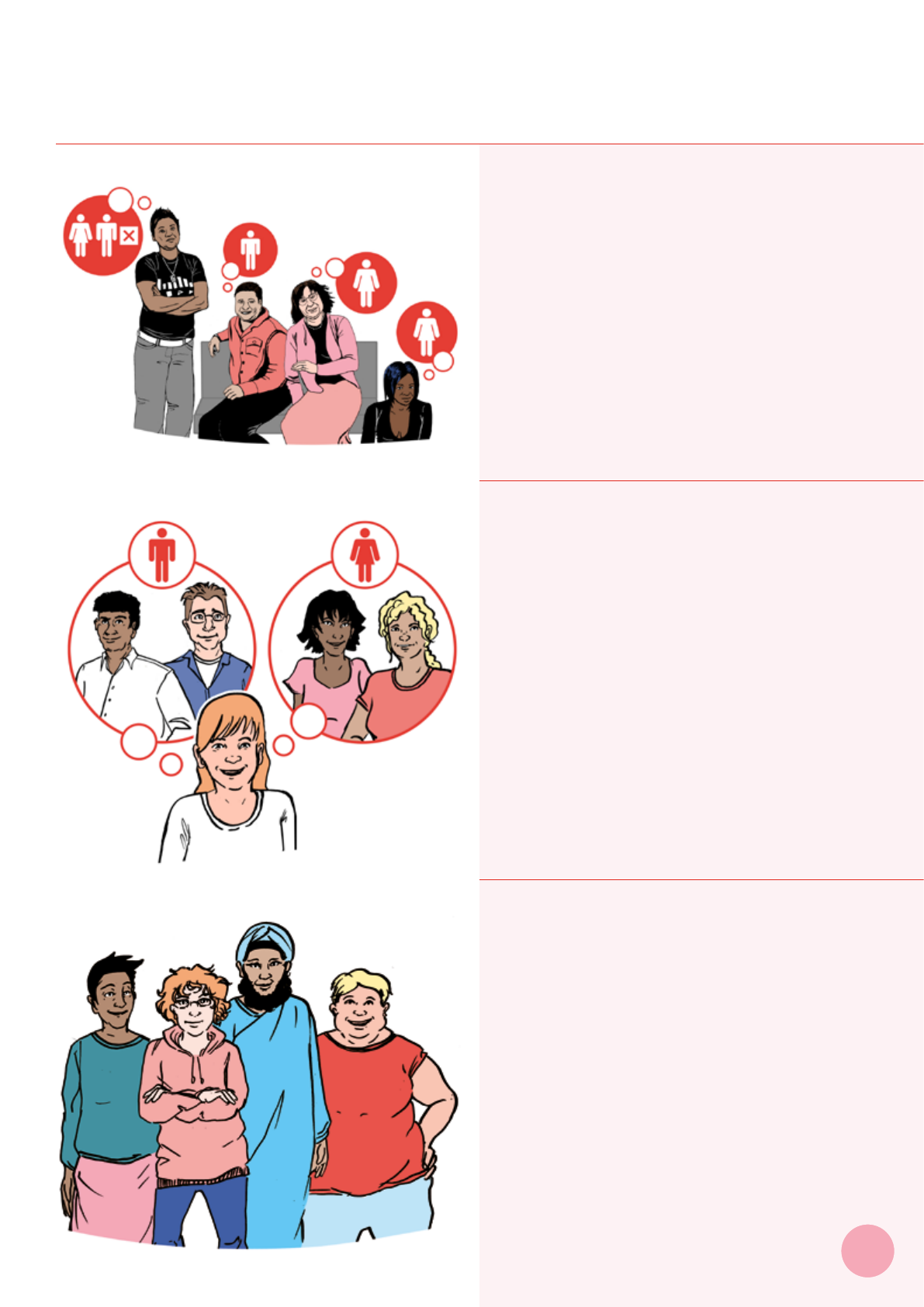
29
29
Introduction
Words and terms
Gender Identity
Gender Identity is your personal
experience of your gender.
Gender Binary
Gender Binary is where people
think a person can only be
either male or female, or either
masculine or feminine.
Non-Binary
Non-binary is a term for gender
identities that do not fall into the
male and female opposites.
Gender Identity can be the same
as your sex at birth or it can differ
from it.
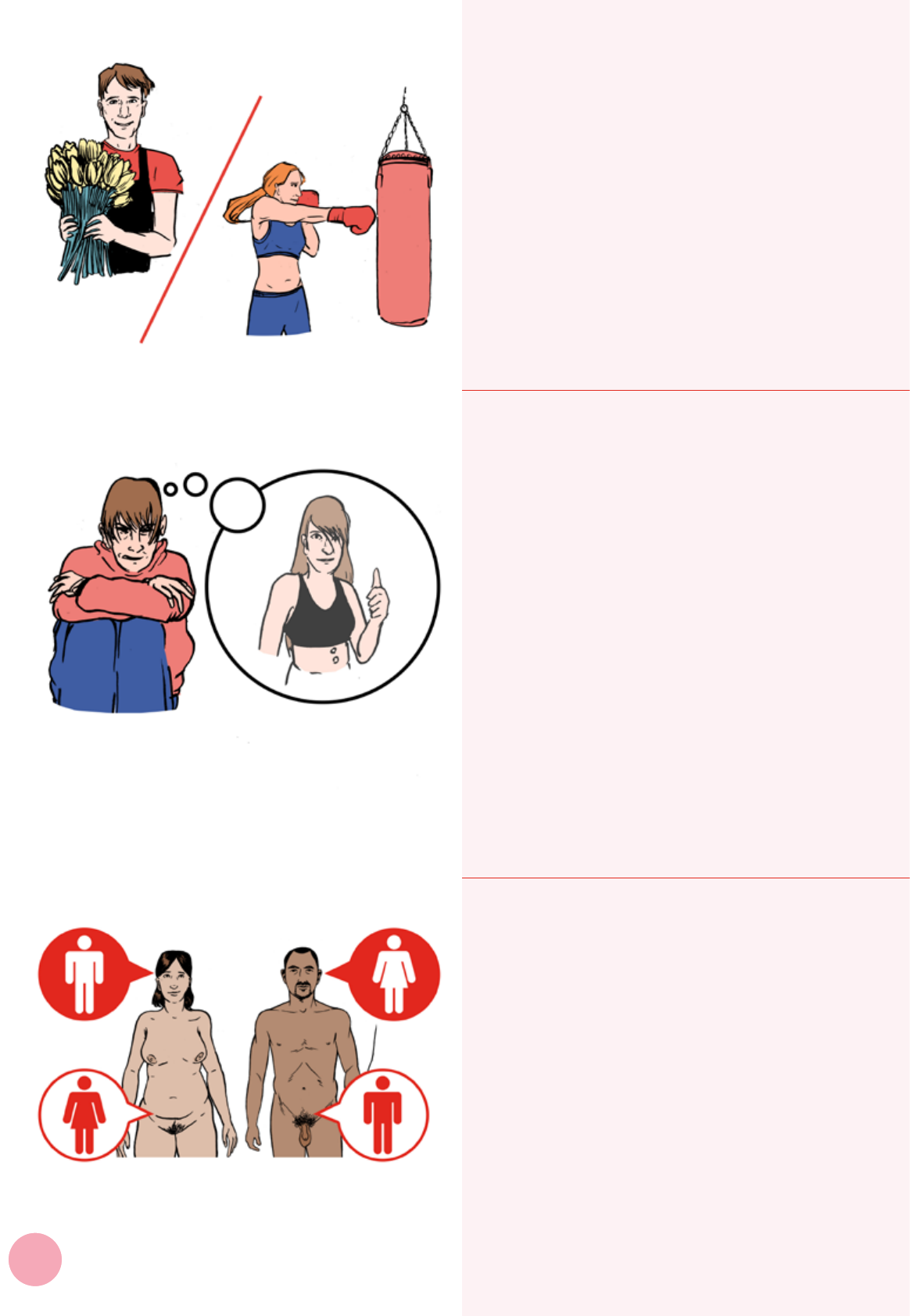
Gender variance
Gender variance is behaviour
or expression by a person that
does not match male and female
gender norms.
Gender Dysphoria
A medical term for when a
person is distressed about the
difference between the gender
that they feel and their
physical sex.
Trans / gender
Transgender is a term used to
describe people whose gender
identity differs from their birth
sex.
30
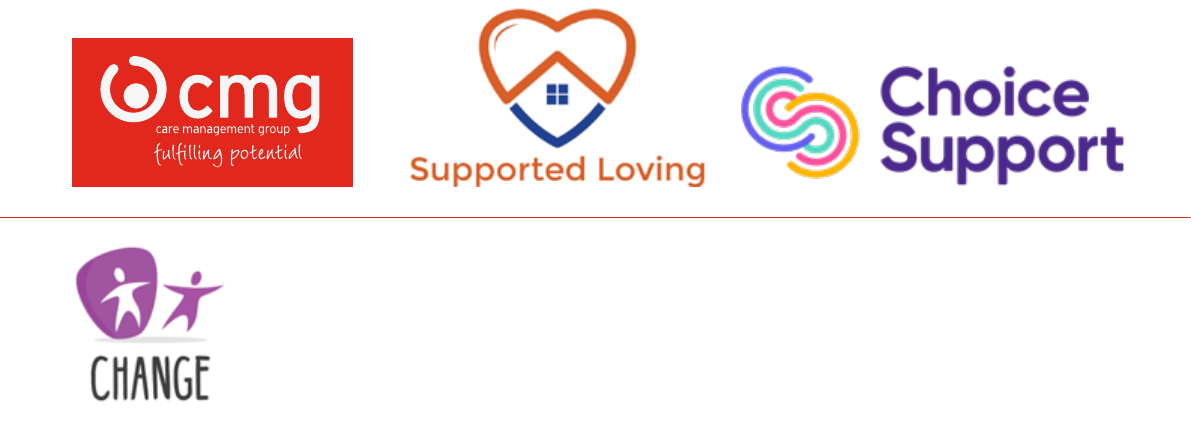
Design and illustration ©CHANGE
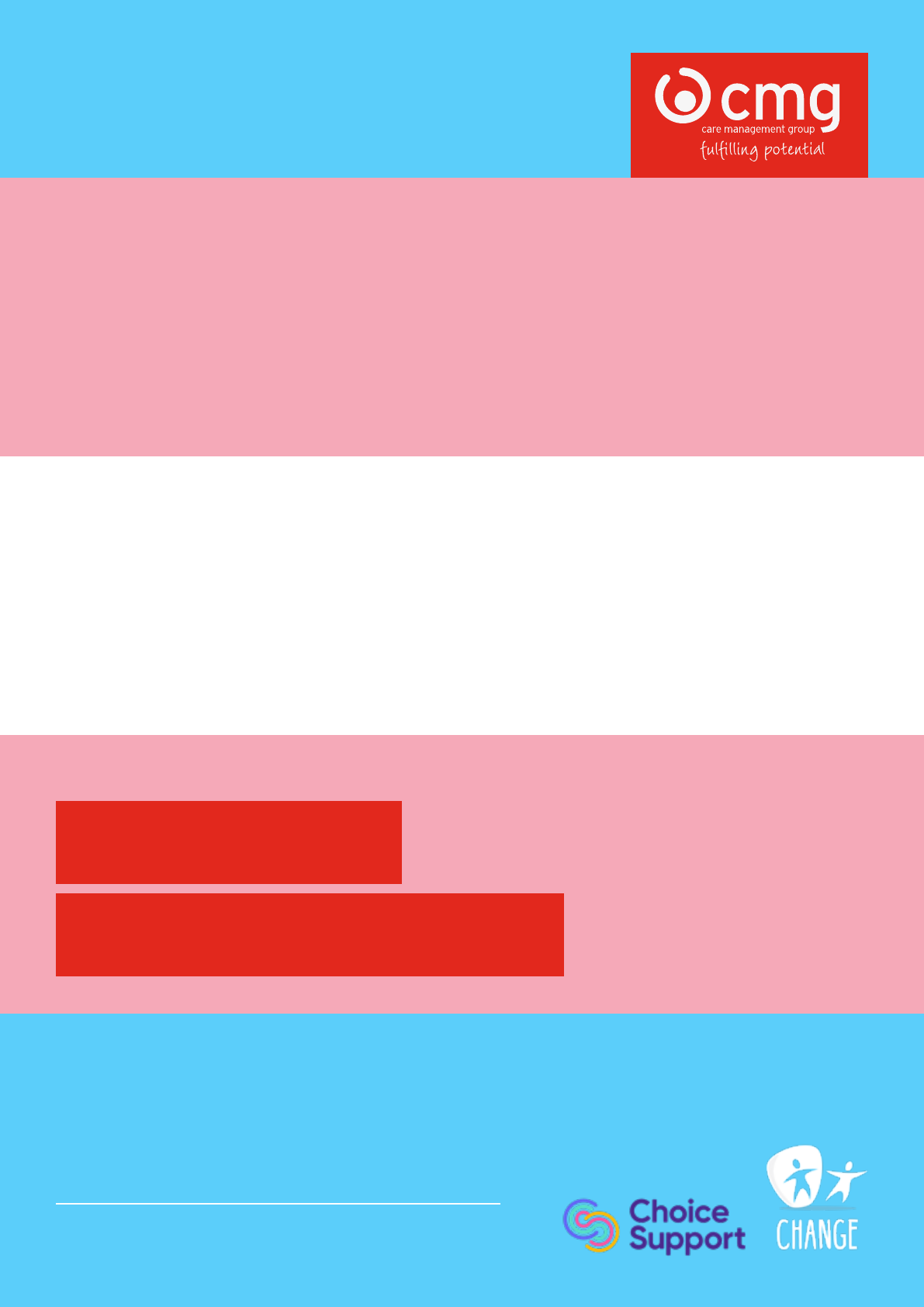
32
Developed by Care Management Group,
CHANGE and Choice Support
Transgender
an easy read guide
Thanks to Persia West
